Happy Trails



Back in 2013, as Aimee Turnbull was completing her successful 10-year run as Steinert girls soccer coach, there was always a young presence at the game, rooting on the Spartans.
That would be her son Chris, who was in second grade at the time. He didn’t know a whole lot about what was going on, but was still aware enough to bleed Green and White in support of mom.
Flash forward a decade, and Steinert is the enemy; and has been for a while now.
Turnbull has become a key member of the Hopewell Valley Central High team, but admits those early days in Hamilton Square helped fuel his desire to be on the pitch.
“I’ve heard a lot of stories,” he said. “A lot of it was before I remember, but I’ve heard stories of me with the team and going to all these games. That’s another reason I got so into soccer. I think it definitely got

The Hopewell Express continues its annual local election coverage with two Q&As in this issue: one with candidates for Hopewell Township Committee, and one with candidates for the Hopewell Valley school board.


In the township, Democratic incumbents Kevin D. Kuchinski and Michael Ruger are running for re-election. They are challenged by GOP candidates Jennifer DiDonato and Daniel J. Hanley, Jr.
 By Dan AUbRey
By Dan AUbRey
James Betz is the Penningtonraised author of the 2020 novel Ralston Heights, a book that the now-Princeton Junction resident calls a “hybrid of supernatural horror and historical fiction.”
See TURNBULL, Page 22
That history deals with the stranger-and-creepier-than-fiction regional presence of Web-
When someone you care about is sick, you’ll do whatever it takes to make sure they get the best care. And so do we.
ster Edgerly (1852 to 1926), a self-appointed 19th-century health guru who advocated Ralstonism — an acronym based on the words “regime, activity, light, strength, temperation, oxygen and nature.”
What is missing from the name is the racist beliefs that Edgerly supported and his desire to create a utopian colony
With a collaborative structure so our doctors can craft a treatment that’s uniquely right for you. With primary care physicians who never schedule an appointment that’s less than 20 minutes. With world-renowned surgeons that are changing cancer treatment.
Because you’d go to the ends of the earth for the people you care about. And we do too.
around his castle-like mansion in Hopewell.
Betz, who says in a statement that he works full-time in the cannabis industry, recently announced the publication of A Party on Redd Street, again mixing regional history and fiction.
This time around, Betz has written a story of Cold War

See REDD, Page 21
Seven candidates are running for school board: Anita Williams Galiano, Andrea Driver and Pamela Lilleston, Aileen Matticoli, John Slotman, Dhruv Kapadia and Mark Austin.
In Hopewell Borough, Democrat Ryan Kennedy is running unopposed for mayor. Three candidates are running for two seats on Hopewell Borough Council: Schuyler Morehouse, Sheri Hook and Heidi Wilenius. The Express plans to cover Hopewell Borough next month.
In Pennington, Democratic mayoral candidate James M. Davy and council candidates Kit Chandler and John J. Valenza II are running unopposed.
This month’s election coverage begins on page 7.
The Hollystone Hotel article published in your last edition was extremely biased and missed the entire point of the result of the zoning board vote. Approval of the hotel application, which granted a zoning variance changing the property use from residential to commercial, was a disastrous blow. Now anyone in the township with a residence can apply and be granted a use variance changing their property to commercial use.
Don’t miss the most popular fall event in Hopewell Valley!
WEDNESDAY, OCTOBER 11 THRU
SUNDAY, OCTOBER 15
Woolsey Park
221 Washington Crossing Pennington Rd
Massively outrageous pumpkins carved by local artists displayed under the big top




• live music • food vendors
• hay bale playground • fire pits
• games • story tellers
• photo-ops...and more
hvartscouncil.org

All proceeds go toward artist/carver honoraria and funding art-related programs of the Hopewell Valley Arts Council.
FALL FAMILY FUN FOR EVERYONE!
Since they have approved changing a residence in the middle of the Mountain Resource Conservation District into a commercial hotel complex, the zoning board might as well zone the entire township commercial. Zoning board members and the township committee members including Mayor Ruger and Mr. Kuchinski, who appointed them, have sold out the residents of our township.
They have voted to allow the development of this commercial complex in the
middle of a Mountain Resource Conservation district, thus destroying the wildlife habitat, ecological system and environment of the surrounding area. The hotel complex they have voted to approve will use thousands of gallons of water every day, which will be taken from the aquifer supplying our well water.
Commercial development of this hotel complex will result in depletion of our natural resources, ruin of our environment, deprivation for all that try to live in the area, loss of our precious peace and quiet and reduction in quality of life.
Debra Hodge TitusvilleI think the zoning board made the right decision in allowing plans for “The Hopewell” hotel to go forward. First, the buildings are already there. It’s not as
See INBOX, Page 4

We are a newsroom of your neighbors. The Hopewell Express is for local people, by local people. As part of the community, the Gazette does more than just report the news—it connects businesses with their customers, organizations with their members and neighbors with one another. As such, our staff sets out to make our town a closer place by giving readers a reliable source to turn to when they want to know what’s going on in their neighborhood.
EDITOR
Joe Emanski (Ext. 120)
CONTRIBUTING WRITERS
Dan Aubrey, Rich Fisher
CONTRIBUTING COLUMNISTS
Robin Schore, Lisa Wolff
AD LAYOUT AND PRODUCTION
Stacey Micallef ACCOUNT EXECUTIVE Christine Storie (Ext. 115) TO ADVERTISE call Christine Storie (609) 396-1511, ext. 115 or e-mail cstorie@communitynews.org
Community News Service 9 Princess Road, Suite M Lawrenceville, NJ 08648


Phone: (609) 396-1511
News: news@communitynews.org


Events: events@communitynews.org

Sports: sports@communitynews.org
Letters: jemanski@communitynews.org
Website: hopewellexpress.com
Facebook: facebook.com/hopewellexpress
Twitter: twitter.com/mercerspace
11,000 copies of the Hopewell Express are mailed or bulk-distributed to the residences and businesses of Pennington, Hopewell Township and Hopewell Borough 12 times a year.

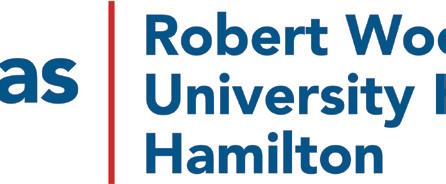
Thursday, Oct 5; 6:00 – 7:30 p.m.
Meet the physician, learn the facts and myths when it comes to early detection and breast cancer, and enjoy a fun painting project. Join our featured presenter, Firas G. Eldaoumikdachi, MD, FACS, specialist in Breast Surgical Oncology, at RWJUH Hamilton Cancer Center. Concluding the physician’s presentation, all participants will engage in a painting project guided by local artist, Yun Li. Light fare and refreshments will be provided. This program is sponsored by I Believe In Pink and RWJUH Hamilton.
REIKI REFRESHER
Monday, Oct 9; 6:00 - 7:30 p.m. Have you been Reiki certified but it’s been so long ago you wonder if you’ve “still got it?” Come out and play with other practitioners in the same boat. This is a safe space to come out and explore the energy! Patti McDougall, Integrative RN, Reiki Master/Teacher. Bring a small sheet and a pillow. $5
THE LINK BETWEEN HEARING LOSS AND DEMENTIA-CAN HEARING AIDS SAVE YOUR BRAIN?
Tuesday, Oct 10, 10:00 – 11:00 a.m.
According to several major studies, older adults with hearing loss are more likely to develop Alzheimer’s disease and dementia, compared to those with normal hearing. Prevention is key. Audiologist, Dr. Lorraine Sgarlato, Au.D., discusses your options.
Monday, Oct 16; 1:00 – 2:00 p.m. When it doubt, just dance! Join us for this spooky dance session with all your favorite Halloween hits.
Tuesday, Oct. 17th at 2:00-3:00pm Curious about fermented foods? Come and uncover the history and science behind fermentation! We will examine the microorganisms responsible for fermenting some popular favorites and taste the results. $5 fee per person. Taryn Krietzman, RDN
Wednesday, Oct. 18; 1:00 to 2:00 p.m. Meditation has been shown to quiet your restless mind and help your entire body to relax. Come experience what all the buzz is about. Beginners welcome. Patti McDougall, BSN, Integrative Therapies Nurse. Free
Wednesday, Oct. 18; 7:00 to 8:00 p.m. Join our drumming circle and help drum your cares away. This evidence-based program is shown to reduce blood pressure, calm stress and increase the fun in your life. Drums provided. Fee: $15. Mauri Tyler, CTRS, CMP
Thursday, Oct 19; 6:00 - 7:30 p.m. Join Kim Huston, Reiki Master and Certified Breathwork facilitator is passionate about sharing this modality with anyone looking for true healing. Sacred Breathwork can help release negative patterns and fears that keep us stuck. Bring a yoga mat and blanket, chairs will also be available. Fee: $15
Thursday, Oct 23; 6:00 - 7:30 p.m. Sound healing uses special instruments like singing bowls, gongs, drums and chimes to create a therapeutic atmosphere promoting deep rest, nervous system rebalancing, and emotional release. Participants sit or lay in a comfortable position while the practitioner takes you on a sound journey for mind, body and spirit. Please bring a yoga mat, blanket, pillow or anything that makes you comfortable, chairs will be available. Andriana Hansen, RYT200, SHA1 of the Learning Cooperative. $15
REIKI SHARE
Wednesday, Oct 25; 6:30 - 8:30 p.m. For folks who have been Reiki certified (at any level) to come share the gift with fellow practitioners. Give a session, get a session. Please bring a sheet and small pillow. Fee: $5
Friday, Oct 27; 1:00 - 2:00 p.m. Do you have a recipe that can stand the test of time? These folks sure thought so! We are tasting our way through some gravestoneetched recipes. Print your own tried-andtrue recipe to share! Fee: $5 per person.
Taryn Krietzman, RDN
Thursday, Nov 2; 5:00 - 6:00 p.m.
Falling (Veggie) Leaves Healthy eating starts early! Empower kids with culinary skills and nutrition knowledge to become their healthiest selves! For children 5 years and older. All children must be accompanied by an adult. Fee: $5 per person. Taryn Krietzman, RDN
Tuesday, Nov 7; 10:00 - 11a.m. With so much information out today on brain health what methods really work? Join Dr. Lorraine Sgarlato, Au.D. to learn more about how to keep your brain young and turn back the clock on your aging brain.
*All programs require registration and are held at the RWJ Fitness & Wellness Center, 3100 Quakerbridge Rd., Hamilton, NJ, unless otherwise noted.

Tuesday, Oct; 3 & 17; 10:00 to 11:00 a.m.
Tuesday, Oct; 3 & 17; 11:15 to 11:45 a.m.
Wednesday, Oct. 4, 11, 18, & 25; 10:00 to 11:00 a.m.
Thursday, Oct; 5; 1:00 to 2:00 p.m.
Scan the QR code to register and become a member or call 609-584-5900 or email bhprogram@rwjbh.org to learn more.
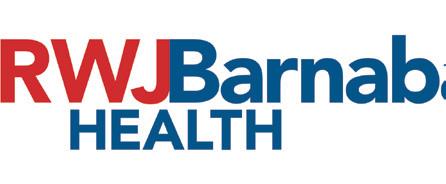
*Registration and free Membership required to attend the Better Health Programs
“Socrates Café” is about discussing a topic, sharing our thoughts, our beliefs, our ideas, and experiences. This is a “safe zone” to share where all views are accepted. Come with an open mind, respect for one another, and a willingness to see where it takes us.
Tuesday, Oct. 10; 1:00 to 2:30 p.m.
Join us for game time, snacks and some wholesome fun. A variety of board games will be available or you are welcome to bring your own.
Thursday, Oct; 12 & 26; 1:00 to 2:00 p.m. CAMPFIRE POETRY CIRCLE
Friday, Oct. 13th at 10:00 - 11:00 a.m. Gather round as we share bewitching and enchanting poems to get us in the fall spirit! Bring your own Halloween-themed or autumnal poem to share and discuss with peers. Taryn Krietzman, RDN
Monday, Oct. 20; 1-2:30 p.m. Explore the world of first aid and readiness for injuries. Join Wendy Jones, RN, for this hands on approach to refresh your memory when it comes to preparedness.
Monday, Oct. 23; 10:30 - 12:00 p.m. Join us for some a ghoulish good time while we paint our own pumpkins! All supplies provided, bring clothes that can get dirty.
Tuesday, Nov 7, 14, 21, & 28, Dec 5 & 12; 1:00 - 3:00 p.m.
Chronic Disease Self-Management Program (CDSMP) is a cost effective evidence-based health promotion program for people with chronic illness. CDSMP is a 6 session workshop designed for people with any ongoing health condition, such as arthritis, diabetes, heart disease, and similar conditions. During the course participants will learn how to problem solve, set goals, and relaxation techniques to help manage chronic conditions. It is expected that participants will attend all 6 classes.
ALZHEIMER’S SUPPORT GROUP
Wednesday, Oct 11, 6:00 - 7:00 p.m.
CARING FOR LOVED ONES WITH CHRONIC CONDITIONS
Mondays, Oct 2 & 16th, 10:3011:30 a.m.
ADULT CHILDREN CARING FOR PARENTS
Monday Oct 2 & Oct 16th, 5:30 - 7:00 p.m.
CAREGIVER SUPPORT GROUP
Wednesday Oct 4; 5:30 - 6:30 p.m.
GRIEF & LOSS SUPPORT GROUP
Monday, Oct. 23; 12:30-1:30 p.m.
Dine in with Edward A. Wingfield, MD, Medical Staff President, Director M. Ghusson Cardiac Catheterization Lab at RWJUH Hamilton and Marie Bernardo, MD, Cardiology, while they discuss “hearty” topics. Bring your appetite for knowledge with these two top doctors. A heart healthy lunch will be provided.
Thursday, Oct; 26; 10:00 to 11:30 a.m. The panel will breakdown our choices, discuss the healthcare system, financial, social, and care needs and how to make it work for you. Please welcome, Randi Goldberg, Archer Law Office, Rachal Baillie, Bear Creek Assisted Living, Gina Barnett, Springpoint at Home, and Kelly Aylward, The Elms of Cranbury Rehabilitation and Healthcare Center. Refreshments will be served.
Thursday, Nov; 2; 10:00 to 11:30 a.m. Open Enrollment is here! Learn what you need to know about your Medicare benefits for 2024 and how to compare plans to find the best coverage and save money. Mary McGeary, the director of the NJ State Health Insurance Assistance Program and Michele Lee, Medicare and Program Specialist, will be the presenters.
Thursday Oct 5 & 19th; 1:30 - 2:30 p.m.
LETTING GO OF CLUTTER
Tuesday Oct 10; 1:30 - 2:30 p.m.
WISE WOMEN DISCUSSION GROUP
Thursday Oct 26; 1:30 - 2:30 p.m.
MANAGING STRESS AND DIABETES
Wednesday Oct 18; 3:00 - 4:00 p.m.
WHAT’S EATING YOU?
Wednesday Nov 1; 11:00 – 12:00 p.m.
GOT STRESS?
Monday Nov 6; 2:00 – 3:00 p.m.
Scan QR code to view, learn more & register on-line for the programs listed above. Or visit rwjbh.org/HamiltonPrograms








Email CommunityEdHam@rwjbh.org or call 609-584-5900 to learn more

though the hotel were to be built from scratch on virgin fields or woodland. I’ve often noticed the gracious stone buildings of Hollystone Manor when driving to the Baldpate Mountain Nature Preserve, and hoped they could be put to use and not be lost.
I can’t take the concerns about traffic and groundwater too seriously. A “boutique hotel” is not the kind of development that would attract a massive amount of traffic. Also, the location is a very short distance from Route 29, and I would think most people coming from a distance would approach it from that direction, leaving people living further up Fiddler’s Creek Road undisturbed. The hotel would be located in a relatively low area, close to the Delaware River, where I doubt the groundwater is in danger of being depleted.
Mixing different land uses in the same area can be a good idea, if done right. The prevailing pattern of development is to build houses, offices, and commercial buildings in separate areas, connected only by highways. This has given us suburban sprawl with the attendant overuse of automobiles and loss of open space. Of course, no one wants to live next door to an oil refinery or a busy shopping mall. But if nonresidential developments are carefully chosen, they can enhance the
quality of life in a region overall. The proposed Hopewell Hotel seems to me an appropriate use for this beautiful property.
Allan Smith HopewellI am honored to serve on the Hopewell Township Committee and have worked tirelessly to make Hopewell more affordable and to defend our water and the environment.
Each year, we scrutinize every budget item and focus on delivering the services residents expect for less. The successful revitalization of the former BMS site (now known as the Princeton West Innovation Campus) and our PILOT agreements will bring significant new revenue into the township, allowing us to shift a portion of the taxes needed to support the budget from residential property owners to these new commercial taxpayers.
We are working to diversify the mix of housing in the township and to create new, more affordable options. Rental units and condos will provide an entry point for young families, teachers and first responders to our community, while townhomes and a new 55+ neighborhood will allow
aging residents to stay in the township. We’ve preserved an additional 1500+ acres, including the Mount Rose Preserve and Woosamonsa Ridge, and we successfully partnered with the county to preserve the Hopewell Valley golf course. We have built on the strong environmental protections in our ordinances with stormwater management policies and are working to expand our trail network and to make our community more walkable and bikeable. And let’s not forget, together we successfully defeated the PennEast pipeline!
 Kevin D. Kuchinski Hopewell
Kevin D. Kuchinski Hopewell
Every resident of Hopewell Township deserves to have someone working on their behalf to make the township an even better place to live. And that is what I have done my best to accomplish over the past six years on the committee, and as mayor this year.
I am proud what the Hopewell Township Committee has done. We have worked hard to keep our tax rate at a reasonable level, and this year reduced our tax rate. We reimagined the old BMS site as an innovation campus that has attracted new businesses that will create jobs and pay taxes. We developed an ordinance to allow for the cultivation, manu-
facturing and sale of cannabis products. This will create a new revenue stream while balancing the need to protect minors and the environment.
We have worked to keep Hopewell Township green. Preserved farmland, open space, and outdoor recreation space make up around 43% of township lands. We have worked to ensure there is a place for everyone to live in the township. New affordable housing options will allow young families and the empty nester choices they did not have before.
We have worked to obtain $10 million in grants over the past few years. We will have a bandshell in Woolsey Park, an upgraded 911 call center, and a down payment on the Senior and Community Center—all at no cost to local residents.
We have worked to increase citizen participation. Committee meetings now offer residents the ability to attend in person or from anywhere with an internet connection. And we keep residents informed with our electronic newsletter, quarterly newsletter and increased social media presence. If Kevin Kuchinski and I are reelected, we will keep working for each and every township resident, every day.
Michael Ruger Mayor, Hopewell TownshipSee INBOX, Page 6

Hopewell Township Committee candidates Kevin Kuchinski and Michael Ruger understand environmental issues and how to respond to them. The challenges our township and the entire region are facing call for actions based on wise planning and decision-making on the part of government as well as residents.

Mr. Kuchinski and Mr. Ruger actively supported numerous green municipal initiatives executed by volunteers and township professionals. These include electric vehicle charging stations paid by an external grant, revision of a state-leading outdoor lighting ordinance to minimize light pollution, the Solar Challenge to promote installation of solar panels across the township, and styrofoam recycling projects. The township’s ongoing Bronze recertification through Sustainable Jersey recognizes many of these green initiatives.
Our Valley stands out as a refuge and place to find peace of mind in open space where native plants and wildlife thrive.
Carol Kleis Titusville
A summer of wildfires and smoke amplifies the need for local adaptation to environmental stresses descending on our 21st century biosphere. Scientifically based decisions and open communication are essential approaches that the Hopewell Township Committee is using to map out our path to sustainability.
The candidates for re-election, Kevin Kuchinski and Mayor Michael Ruger, have spearheaded efforts to protect our landscape and its denizens while fostering greener design in development. A good example is the biopharmaceutical R&D facility now under construction at the former BMS campus in Hopewell Township. Late in the planning process, residents voiced concern about bird mortality from crashing into the expansive glass window design. While humans can usually detect glass as a barrier, birds often cannot, leading to an estimated hundreds of millions of bird deaths each year through collision with windows in the U.S. Science and engineering have recently devised an adaptive solution. “Birdfriendly” glass presents ultraviolet reflecting patterns that birds see and avoid, yet are minimally visible to human. High energy efficiency and aesthetic qualities are maintained, while bird collisions are reduced by 70% or more as reported by the American Bird Conservancy.
Here in the township, Kevin Kuchinski followed up effectively with BeiGene officials, resulting in a formal commitment to use bird-friendly glass for this project.
The leadership of Mr. Kuchinski along with Mayor Ruger and the committee has brightened the prospects for birds and their human watchers.
When deciding where to live, Hopewell Township has become an excellent choice thanks to the leadership of Hopewell Township Committee members Michael Ruger and Kevin Kuchinski.
On the issue most on the minds of many New Jerseyans, Ruger and Kuchinski worked tirelessly to reduce the residential property taxes required to fund the Hopewell Township government. They practice disciplined budget control while finding additional commercial and state revenue sources. That not only holds the line on residential property taxes, the tax rate for local government spending has been reduced for two years in a row.
At the same time, Mayor Ruger and committee member Kuchinski have enhanced Hopewell Township’s commitment to preserve and protect our lands
and waterways. Nearly 43% of the land area in our 60 square-mile township is now dedicated to open space, recreation, and preserved land.
Finally, Ruger and Kuchinski have led the way to investments in community assets such as the band shell at Woolsey Park, an improved 911 dispatch system, the development of a new community/ senior center, and extension of the Lawrence Hopewell Trail.
Thanks to their leadership, Hopewell Township is one of the best places to live in New Jersey.
Diane Sandahl Chair, Hopewell Valley Democratic ClubCorrection: The September 2023 Hopewell Express article, “Zoning board vote allows proposed boutique hotel plans to proceed,” stated that developer Margot Stern’s plans for The Hopewell included a membership plan for the local community.
Such a membership program had been included in the proposal in the past, but is no longer part of the developer’s plans.
September 2017
Two Democrats and two Republicans are running for two seats on the township committee this fall. The incumbents are Michael Ruger and Kevin Kuchinski. Challenging the Democrats for the second year running is the GOP slate of Jennifer DiDonato and Daniel J. Hanley, Jr.
Jennifer DiDonato, 47, is a “domestic CEO,” AKA stay-at-home mom. She has lived in Hopewell Township for 11 years. She and husband Peter DiDonato have two children, a son in high school and a daughter in college.
DiDonato is a Class of 2027 parent representative, freshman soccer team parent representative, CHS PTO member, Hopewell Valley Municipal Alliance member, and Pennington 5K committee member.
Daniel J. Hanley, Jr., 53, is a certified financial planner. He has lived in Hopewell for 14 years. Hanley and wife Andrea have three children: Bryce and Austyn, who attend Hopewell Valley Cen-

tral, and Hudson, a student at Bear Tavern Elementary
The second-time candidate for committee has served as a board member and treasurer of the Hopewell Valley YMCA and treasurer of Hopewell Valley Lacrosse, and is on the Hopewell Valley High School Class of 2025 PTO. He is also a Hopewell Valley recreational lacrosse coach.
Kevin D. Kuchinski, 54, is managing partner and chief operating officer of Princeton Partners and a founding partner of Sourland Mountain Spirits, New Jersey’s first farm-based craft distillery since Prohibition. He has lived in Hopewell for more than 20 years. Kuchinski and wife Leslie have four children: Ryan, Brennan, Liam and Kaitlyn.
Kuchinski is a board member and past president of the Hopewell Valley Education Foundation, co-chair of the advisory board for the Watershed Institute and chair of the St. James Finance Council. He is also a board member for the N.J. Chapter of the American Red Cross and the New Jersey Conservation Foundation. He
has been on the township committee since 2015 and served as mayor from 2016-18. He is the finance lead for the committee and also serves on the planning board, parks and recreation advisory committee, the historic preservation commission and the newly formed tourism and economic development committee.
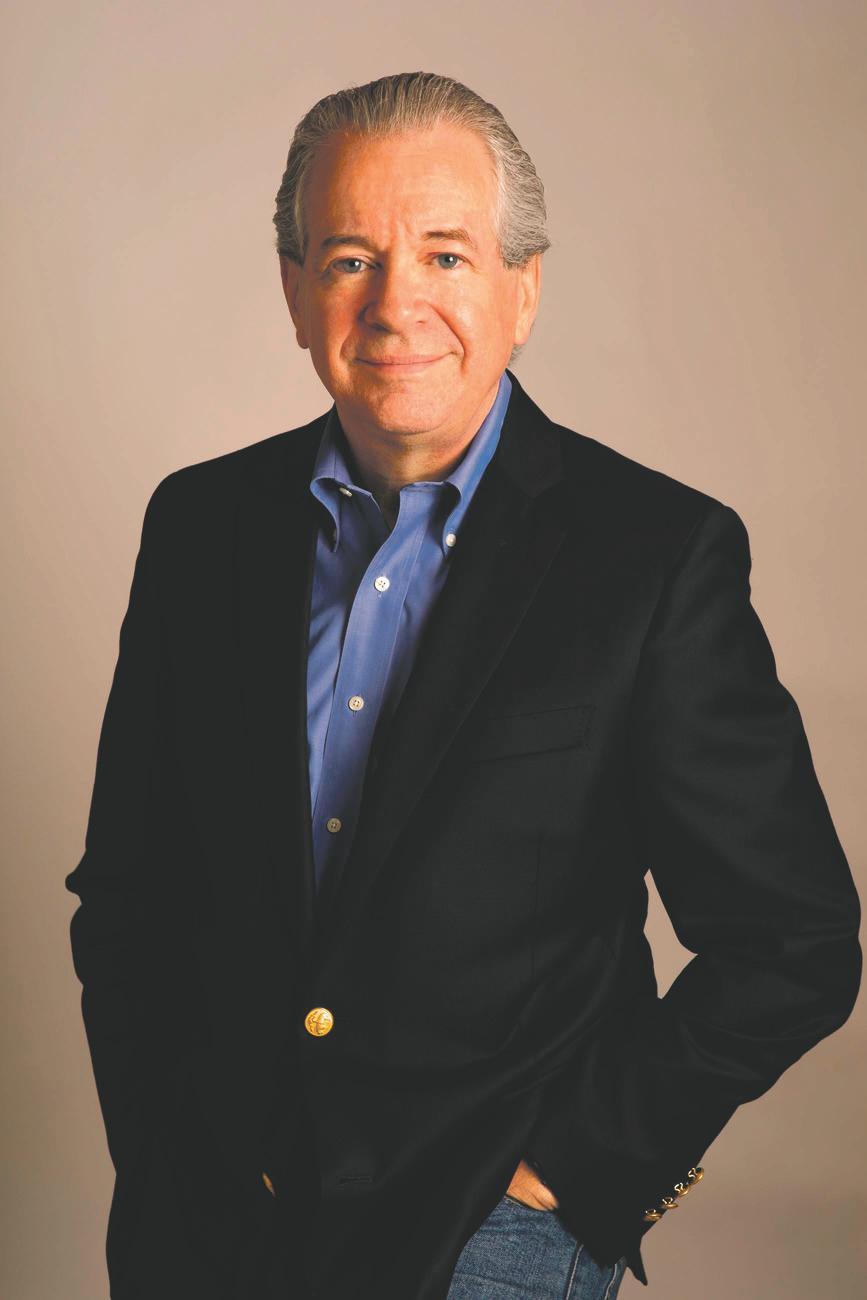
Michael Ruger, 60, is vice president, local government affairs, policy and operations for Comcast. The 25-year Hopewell resident is married to Tracy Vogler and they have three children: Teddy, Billy and Bobby.
Currently the mayor of Hopewell Township, Ruger has been on the township committee for six years. He has been the township committee liaison to the public works department and the police department. He has served as a member of or liaison to the environmental commission, open space committee, planning board, Woolsey Park advisory committee, agricultural advisory committee and citizens equity advisory committee. He is vice chair of the board of directors of the
Boys and Girls Clubs of Mercer County and chair of the board of Visitors of the Political Science Department at Penn State. He previously served as vice chair of the board of the Juvenile Law Center.
The Hopewell Express emailed questionnaires to the candidates and asked for their responses. Their answers can be found below, edited as little as possible for length, grammar or clarity.
Tell us about the moment that you decided to run, or run again, for township committee. Why did you make this decision?
Jennifer DiDonato: I noticed numerous for sale signs in my surrounding area and three large construction projects in the southern part of Hopewell Township, all rapidly progressing. These projects aim to create more than 2,000 new homes. Although I briefly considered moving, my husband reminded me that change begins at home. I’m determined to ensure responsible project management with a focus on environmental protection, safety See COMMITTEE, Page 8
COMMITTEE continued from Page 7
for residents, including humans, animals, and insects.
Hanley: During the height of Covid, I would walk outside and listen to my favorite podcasts. One of them resonated with me and inspired me to run for office. The podcast host proclaimed: “You must start local from the bottom up to change anything in this country.” And nothing has changed since then.

Kevin Kuchinski: I first ran for township committee because I wanted to: increase financial discipline in the Township and lower taxes; and lead the fight against the PennEast pipeline and protect the Valley’s rural character. We’ve made significant progress on both fronts.

My focus moving forward will be on reducing the share of taxes paid by residents. The revitalization of the former BMS site and the PILOT agreements we’ve negotiated will help us achieve this.
Michael Ruger: I initially ran for Township Committee because I wanted to help our community. For the past six years I have had the honor to work for the people of Hopewell Township. I am proud of our accomplishments. There is more to be

done, and I am running again because I want to continue to make the township an even better place to live. And as I have done for six years, I will represent everyone.
Rate the job the committee has done in recent years to attract new ratables to the township. What can you as a member of the committee do in the future to ensure that the township remains attractive for business?
Kuchinski: We have successfully revitalized the former BMS site, creating an innovation hub for pharmaceutical businesses and attracting four world-class companies.
BeiGene is investing ~$700 Million in its facility and is ontrack to deliver more tax revenue on 40 acres than the entire 186-acre site formerly did. We worked closely with the private sector, state and county to make the campus attractive to pharma companies and to secure these new investments.
More recently, we took advantage of new state cannabis laws and attracted an indoor cannabis cultivation facility to Hopewell. We will receive 2% of revenues from this facility, and strict lighting, odor and security controls will be in place. I will also continue my work to support
new small businesses and restaurants in Hopewell.
Ruger: We have done an outstanding job. Several years ago, we faced the loss of BMS. This blew a huge hole in the budget. We worked with the state, County, and private sector to reimagine the site as the Princeton West Innovation Campus, a location for world-class pharmaceutical development. We attracted tenants, reinforcing Hopewell Township as an innovation hub.
We also took advantage of New Jersey’s cannabis law to allow cannabis cultivation, manufacturing and sales in the township, which will bring in new ratables while carefully balancing all interests and ensuring the protection of minors. And we started a tourism and economic development advisory committee to work with existing businesses and attract new ones that are consistent with the nature and character of the township.
DiDonato: It’s apparent that the committee has made efforts to attract new businesses to the township. The outcome and proper project management of those efforts remains to be seen. Actively seeking feedback from existing businesses and exploring ways to address their
needs, as satisfied current stakeholders could be our best advocates.

Ultimately, our committee must remain adaptable and forward thinking, continuously evaluating their strategies and adjusting them to meet the evolving needs of businesses and residents in the township. By fostering innovation, nurturing existing relationships, and forging new ones, we can ensure the township remains attractive and thriving for years to come.
Hanley: It’s very difficult to get anything through the zoning board, which deters businesses from coming here. Notably, businesses like Wawa and QuickChek. I would ask, why did BMS leave? Did they leave for tax reasons? I know we gave a $2 million tax break to a multibillion-dollar public company to move here. I would contact the National Main Street program to see how we can possibly establish a “Main Street.”
What are two vital issues facing Hopewell Township today, and what will you do as a member of the township committee to address them?
DiDonato: Overdevelopment. The pace of overdevelopment in our township has become alarming. The recent See COMMITTEE, Page 13

In 2022, Capital Health joined community partner Trenton Health Team to launch the Trenton Neighborhood Initiative (TNI). As part of Capital Health’s mission to improve the health and well-being of the urban and suburban populations it serves, TNI works to drive $10 million of investment in the neighborhoods surrounding Capital Health Regional Medical Center in Trenton to address the societal factors that affect the overall health of the city’s residents.
Boosted by an initial $2.5 million leadership gift from the Bristol Myers Squibb Foundation, TNI introduced a transformative plan that seeks to make significant strides in housing and neighborhood improvements, workforce education and employment, child and family support services, and technology training and tools for residents.
“As the health care landscape continues to evolve, it is our responsibility to understand and embrace our changing role in the community,” said Al Maghazehe, president and CEO of Capital Health. “TNI goes well beyond the walls of our hospitals and medical offices to look at societal factors that impact the health of our community. Based on input from community residents, data and recommendations from existing neighborhood plans, and industry best practices, TNI programs have been developed to have a lasting positive impact on the well-being of our neighbors and complement the health care services Capital Health offers.”
TNI’s Homebuyer Assistance Program, in partnership with New Jersey Community Capital, is making a difference with Address Yourself, an affordable homeownership program that provides financial counseling and up to $20,000 in down payment assistance (as a forgivable loan) to applicants seeking to become first-time homeowners in Trenton. Since its launch, this program has provided financial guidance for almost 30 first-time home buyers and helped facilitate seven home purchases, with more in process as of this writing.
TNI works with Mercer County Community College (MCCC) to provide educational scholarships of up to $5,000 per year per student
for a limited number of Trenton residents (including those who work at Capital Health) who attend short-term credentialing or associate’s degree programs in health-related fields at MCCC. So far, more than 30 scholarships have been awarded to Trenton residents.
Capital Health and community partner Arm in Arm host a Mobile Food Pantry for Trenton residents from 9:30 a.m. to noon on Wednesdays at Capital Health – East Trenton (first and third Wednesdays) and Capital Health Family Health Center (second and fourth Wednesdays). Offerings include non-perishable items, fresh produce, and meat and/or eggs and dairy. Since March 2023, more than 3,000 people have been served at more than 14 Mobile Food Pantry events.
Additionally, the TNI Family Support Program connects North Trenton families with a community health worker to achieve housing and economic stability and improve health outcomes for children, their parents, and seniors. TNI Family Support assists families by purchasing emergency supplies (such as food, diapers, car seats), facilitating communication with health care and social service providers, and providing guidance for routine appointments, records, and prescriptions. As of June 2023, 85 individuals have received assistance and more than $111,000 in material support.
TNI is also generously supported by Allied Universal, Bank of America, Investors Bank, Janssen/Johnson & Johnson, Labcorp, Citizens Bank Philanthropic Foundation, the George H. Sands and Estelle M. Sands Foundation, Sodexo, the Wawa Foundation, and many other corporate and private foundation partners.
For more details, visit tnitrenton.org.

















As part of the growing full-service cardiac program available at Capital Health’s Heart and Vascular Institute, physicians and staff from the Institute’s Structural Heart Program recently performed their first transcatheter aortic valve replacement (TAVR) procedure at Capital Health Regional Medical Center in Trenton, New Jersey.
TAVR is a minimally invasive treatment option for patients with severe aortic stenosis (narrowing of the aortic valve opening) or those with a failing surgical aortic valve who are at elevated risk for complications during open surgery. Experts from Capital Health’s Structural Heart Program perform procedures like TAVR to manage and treat heart valve conditions and other structural issues of the heart.
When severe aortic stenosis occurs, the heart needs to work harder to pump blood to the rest of the body, which in turn can limit your daily activity. With TAVR, an artificial valve is delivered to the heart through a thin, flexible tube (catheter) that is inserted into one of












several possible access routes and placed into the diseased valve. The procedure typically takes one hour or less to complete.

“Patients who get transcatheter aortic valve replacement experience all the benefits of minimally invasive procedures, including less pain, shorter hospital stays, and a lower risk for major bleeding,” said DR. DAVID DRUCKER, medical director of the Structural Heart Program and board certified, fellowship trained interventional cardiologist at Capital Health Cardiology Specialists. “The biggest benefit for many TAVR patients is that they usually start feeling better right away. With a heart valve that is working properly, they breathe normally, have more energy, and can go back to everyday activities.”
Following the TAVR procedure, patients are monitored in the intensive care unit (ICU) for a few hours before being moved to a standard patient room. Patients usually begin walking the same day as their TAVR procedure and are typically discharged within one or two days.

To make an appointment at Capital Health Cardiology Specialists, or to find an office near you, visit capitalhealthcardiology.org.





p.m.



The use of e-cigarettes skyrocketed in recent years under the incorrect thought that they were safer and contained fewer toxic chemicals than regular cigarettes. We now know that once inhaled, these harmful products have ingredients that can damage the lungs and can also cause many other physical and psychological symptoms from cardiovascular effects to nausea, flu-like symptoms and decline in sexual performance. Join DR. DIANA KOLMAN, director of Interventional Pulmonology at Capital Health, to get the facts about vaping.
This event will be taking place virtually using Zoom. Register online at capitalhealth.org/events and be sure to include your email address. Zoom meeting details will be provided via email 2 – 3 days before the program date. Registration ends 24 hours before the program date.





Sharing more time with family and friends during the colder months can be nice, but it can take a turn for the worse when we start sharing germs too. We’ve all felt the symptoms—sniffling, sneezing, body aches, and fatigue—but understanding whether it’s a cold or the flu can go a long way in helping you recover.

“Recognizing the difference between a cold and the flu can be tricky,” said DR. AVIRAL YADAV, a board certified family medicine physician at Capital Health – Virtual Primary Care. “But there are simple steps you can take to prevent the spread of both, like washing your hands often and disinfecting commonly touched surfaces. If, despite your best efforts, you end up getting sick, scheduling a video visit with one of our providers from Capital Health – Virtual Primary Care is a good first step toward a quicker recovery.”




A cold begins when a virus attaches itself to the mucous membranes lining your nose or throat. Your body’s immune system responds by sending white blood cells to combat the invader. This is what is behind the inflammation in your throat and nose that leads to coughing, sneezing, and lots of mucus.


For most adults, the worst symptoms usually pass after a few days. Children, however, have less developed immune systems and may
















Thursday, November 9, 2023 | 6 p.m.
Location: Zoom Meeting
take longer to recover. Unfortunately, there is no specific treatment or vaccine for colds, but if symptoms persist or worsen, call your primary care doctor. You may be dealing with the flu or a bacterial infection. Seasonal flu is caused by viruses that attack the body in the same manner as a cold. Some symptoms are similar too: cough, sore throat and fatigue. Unlike cold sufferers, those with the flu usually experience high fever and body aches.
Recovery takes a week or two with plenty of rest and clear liquids. Complications, however, can develop, ranging from sinus infections to pneumonia or more serious conditions. Those most at risk for complications include young children, adults 65 or older, pregnant women, and anyone with certain chronic medical conditions, such as lung disease or heart disease.

The first line of defense against the flu is vaccination, which the Centers for Disease Control and Prevention recommend for everyone ages six months or older. Flu activity usually peaks between December and March each year, so you should get try to get vaccinated by the end of October.

Capital Health – Virtual Primary Care is a team of more than 35 primary care providers who can address a wide range of health conditions, including (but not limited to) the common cold, flu, symptoms of COVID-19, upper respiratory infection, and more. For details, or to request an appointment, visit capitalvirtualcare.org



Forgetfulness, lack of mental clarity, loss of motivation, and an inability to concentrate are associated with a non-medical condition broadly identified as “brain fog.” Join DR. EMIL MATARESE, director of the Concussion Program and board certified neurologist at Capital Institute for Neurosciences, to learn about the cognitive impact of COVID-19 and other conditions and treatment options to help dissipate the fog.
This event will be taking place virtually using Zoom. Register online at capitalhealth.org/events and be sure to include your email address. Zoom meeting details will be provided via email 2 – 3 days before the program date. Registration ends 24 hours before the program date.














Capital Health Regional Medical Center (RMC) recently earned recognition from the Lown Institute as one of the most socially responsible hospitals in America. In the Lown Hospital Index, a report by the Institute that evaluates more than 3,600 hospitals across the nation, RMC received an A grade and ranked 17th out of 60 hospitals in New Jersey based on several key metrics that measure social responsibility. Among those metrics, RMC ranked number one in New Jersey for racial inclusivity and received A grades for health equity, patient safety, and community benefit. The report also ranked RMC among the top 100 hospitals nationally for inclusivity.
“Capital Health Regional Medical Center has a history of providing high-quality, equitable care to the people of Trenton and surrounding areas that goes back more than 130 years,” said Dr. Eric Schwartz, vice president of Community Health and Transformation and executive director of Capital Health’s Institute for Urban Care. “Earning this ranking from the Lown Institute for a second consecutive year validates the hard work of our staff and shows our community that
we remain committed to this tradition of health care excellence for all residents in Mercer, Bucks, and Burlington counties.”
“When communities have access to socially responsible health care, our nation grows stronger,” said Dr. Vikas Saini, president of the Lown Institute. “That’s why it’s so important to hold up these high-performing hospitals as examples for others to follow.”
The Lown Hospitals Index for Social Responsibility is the only ranking to include metrics of health equity and value of care alongside patient outcomes, creating a holistic view of hospitals as total community partners. The 2023-24 Lown Index evaluates hospitals on 50+ measures for more than 3,600 hospitals nationwide.

Capital Health Regional Medical Center has a long history of serving Central New Jersey and Lower Bucks County, Pennsylvania. The hospital includes a state designated comprehensive stroke center (part of Capital Institute for Neurosciences), the Level II Bristol Myers Squibb Trauma Center (one of only 10 designated trauma centers in New Jersey), and Mercer County’s designated Emergency Mental Health Services Center. RMC also provides general and interventional radiology services, dialysis, and numerous other medical services. To learn more, visit capitalhealth.org.









Monday, November 20, 2023 | 6 p.m.

Location: Zoom Meeting
Prediabetes puts you at increased risk of developing type 2 diabetes, heart disease, and stroke. The good news is that by making lifestyle changes, it is possible to prevent type 2 diabetes and even reverse prediabetes. Join Mindy Komosinsky, registered dietitian/nutritionist and certified diabetes care and education specialist, to learn more about prediabetes and how small steps can make a big difference in preventing type 2 diabetes.
This event will be taking place virtually using Zoom. Register online at capitalhealth.org/events and be sure to include your email address. Zoom meeting details will be provided via email 2 – 3 days before the program date. Registration ends 24 hours before the program date.
growth lacks the necessary forethought required to manage the consequences of an expanding population. A proper proposal should be formulated to address the escalating issues of traffic congestion and overcrowding of our schools. In school board meetings, it’s been suggested that at least two schools need additions, possibly requiring a referendum. Will the township use PILOT funds wisely for these additions, or will taxpayers bear the burden of another referendum?
Collaboration with Hopewell and Pennington Boroughs. It’s imperative to foster collaboration and effective partnerships with our neighboring boroughs. It’s a perplexing situation that these two adjacent boroughs, whose children also attend our schools, were offered no benefits of township PILOT funds. It is essential to find equitable solutions that profit all parties involved.
Hanley: The overdevelopment of the township and the traffic issues that will follow. We must maintain the beauty and character of the township. In order to achieve this, new planning and zoning boards must be appointed to ensure they follow the master plan developed in 2002.
Kuchinski: The first issue is affordability. I have worked hard to ensure thetownship delivers the services residents expect for less, and we were able to lower the municipal tax rate this year. Looking ahead, we must leverage revenues from new commercial taxpayers to reduce the share of taxes paid by residents. New, more affordable housing options will also help, enabling young families, teachers and first responders to live in Hopewell.
The second issue I will focus on is defending our water and the environment. I do not support the broad-scale conversion of homes to commercial uses, particularly in the environmentally-sensitive MRC/VRC districts. With limited water resources in the Valley, we need to continually guard against development proposals and fight to preserve Hopewell’s special character.

Ruger: The first issue is change. In the township’s recent history we have seen the construction of Brandon Farms, the Merrill Lynch campus, Capital Health, and Hopewell Crossing, for example. More change is coming, including developments under construction pursuant to a 2017 agreement adopted by a unanimous, bipartisan township committee to fulfill our affordable housing commitment. We will welcome our new neighbors while making sure the township has services and amenities for all residents.
The second issue is finances. I have worked to ensure we get the most value out of your tax dollar and will continue to do so by carefully reviewing each budget, paying down debt, and looking for new sources of revenue. I’m proud that we reduced the township tax rate this year.
How will you, as a member of the township committee, take Hopewell forward?
Kuchinski: First, I will focus on reducing the township’s debt, which currently consumes almost 25% of the municipal budget. This will allow us to decrease wasteful interest payments while improving township services for residents. Second, I look forward to the construction and opening of the new senior and community center, which will create added space for senior programs as well as new recreation and fitness facilities. Importantly, the center will include both lap and warmwater pools and enable us to bring our high school swimmers home.
Finally, we will be seeing significant new revenues over the coming years from the successful revitalization of the former BMS site and our PILOT agreements. We should leverage these monies to further reduce taxes for residents.
Ruger: I have already discussed finances. In future years, as we see the benefits of new revenue streams, I want to pay down township debt, which accounts for about a quarter of our budget. We’ll need to balance this against any expansion of services but I am confident we can do so. I want us to sell Pennytown, a wellintentioned purchase by a long-ago committee. I want to see the opening of the senior and community center, for which we received a $2 million down payment from the state. And I want us to continue to see how we can increase transparency and citizen participation. We’ve come a long way with hybrid committee meetings, our monthly and quarterly newsletters, and increased social media presence.
DiDonato: I would advocate for fostering open communication by actively encouraging increased public participation, not just in the township committee meetings but in all subcommittee meetings as well. These meetings should prioritize in-person sessions while retaining virtual options. Relying on a virtual approach is ineffective and fails to nurture a sense of community inclusion.

Efficient communication and collaboration with Hopewell and Pennington boroughs are crucial endeavors. Our children share classrooms, playgrounds, sports facilities, while our seniors rely on com-
See COMMITTEE, Page 14
mon services. We also depend on shared roads and infrastructure. Establishing a harmonious relationship is vital to jointly address challenging issues and reach amicable resolutions.
The recent application to the zoning board for a commercial land-use variance of the former Hollystone Manor on Fiddler’s Creek Road has put a spotlight on the township’s master plan. Can you say that you have read the master plan start to finish? To what extent is it the committee’s duty to heed, interpret and/or update the master plan?
DiDonato: I have read through the master plan as well as the 2016 amendment and 2021 reexamination. The recent decision of the zoning board regarding Hollystone/The Hopewell does not seem to align with this plan. The master plan emphasizes that growth should be in accordance with capacity limits and guided by natural resource capabilities and infrastructure.
Residents in the vicinity are worried that the substantial water demands of this commercial project may necessitate residents to invest in new, more powerful, or deeper wells to supplement their water supply. Furthermore, a section of the master plan encourages the strategic placement and design of transportation routes that facilitate smooth traffic flow while discouraging the establishment of facilities and routes that lead to congestion or blight.
Unfortunately, this consideration was overlooked when granting the zoning variance for Hollystone Manor, potentially resulting in increasing traffic issues along Route 29 and impacting neighboring homes on Fiddler’s Creek.
Hanley: The master plan is 82 pages long with many of the page’s being maps of the township which include: steep slopes, geology and forested areas. My personal philosophy is to use the master plan as a strict guardrail and to enforce the plan as was intended. As David Brower said: “We do not inherit the earth
from our fathers, we are borrowing it from our children.”
I subscribe to the master plan summary: The future face of the Hopewell Valley will be shaped, in large measure, by this master plan. The open fields and meadows, the calming influences of free-flowing streams and rivers, and the beauty of forested slopes are a legacy for future generations.

Faithful adherence to the policies outlined in this conservation plan, combined with a broad concept of stewardship where all citizens contribute, will protect and enhance the special character of the landscape, and the healthy ecology with which Hopewell Township is blessed.
Kuchinski: Yes, I have read the master plan from start to finish. It puts strict limits on development, particularly in the Mountain and Valley Resource Conservation Districts, which I strongly support. I first ran for committee when PennEast proposed to build a redundant fossil fuel pipeline through the heart of the preserved open space and farmland in the township, and led the fight to defeat this project over 7 years. Subsequently, we stopped Kooltronics from building hundreds of homes in a rural portion of the township and successfully preserved the Hopewell Valley golf course in partnership with the County.
I am proud that 43% of Hopewell Township is now preserved open space/farmland and outdoor recreation space. We have created an extensive trail network and have one of the most walk-able/bikeable communities in the area. The committee and planning board have been working to update and affirm key master plan elements.
Ruger: I have read the master plan. I won’t comment on matters before the independent zoning or planning boards that may be subject to board or judicial review. I believe it is inappropriate for me as a committee member to do so. But
we should be guided by the master plan. Exceptions should be made only after careful review, and should not become the norm.
The plan covers many areas, including housing (noting as an objective “to provide for a variety of housing types which respond to the needs of households of varying size, age and income, persons with disabilities and emerging demographic characteristics”), community facilities (“to provide facilities for community groups and cultural activities”), and recreation and open space (“to devise appropriate strategies for the public and private ownership and maintenance of open space and recreation lands”). These are some of the areas I have addressed while on the committee.
High cost of living, high taxes and high home values have many residents fearful that they will be unable to remain in Hopewell in their later years. What can or should the township committee do to ensure that people will not be displaced as they age?
Kuchinski: This is an issue near and dear to my heart. I have seen far too many families and seniors move out of Hopewell Valley, in pursuit of lower taxes. A critical first step to making Hopewell more affordable is diversifying our housing options, including lower cost condos and townhomes and new rental options.
Fully 25% of the affordable units being built are reserved for seniors. Democrats’ StayNJ program will be another important tool to help older residents remain in Hopewell. This program starts in 2023 and will ultimately provide a 50% property tax credit for seniors, up to $10,000/year.
Ruger: Helping people age in place with dignity is critically important. The township committee cannot control federal, state, county, or school taxes, or the cost of living. But we can control our budget. It’s not all about finances, though. We need a variety of housing for seniors of all income levels.
The Four Seasons development provided my late mother-in-law, June Vogler, with an accessible home to stay in the township. The new developments will have senior housing. We also must continue to provide services such as transportation and meals. And soon, we’ll have a new senior and community center.
DiDonato: With aging parents residing locally, I am deeply invested in ensuring their financial well being. I believe the township should consider various avenues to provide greater support to its senior community. A few efforts I would encourage them to explore would be to freeze property tax rates, establish
an income-based tax relief, offer senior tax exemptions or discounts, launch a tax deferral program, create homestead exemptions for seniors who live in their primary residences and implement property value caps.
Additionally, I’d seek to provide senior tax workshops, establish a community organization or volunteer assistance, and encourage collaboration with senior centers.
Hanley: This is a very important issue as we want them to stay in New Jersey where most likely their family still lives. I am not sure if your readers are aware, but Gov. Phil Murphy announced a program called StayNJ where homeowners 65 and older who make $500,000 or less will qualify for up to $6,500 in property tax relief. Renters would also get up to $700 in rebates. The township committee needs to ensure that all future affordable housing is actually affordable.

Why should the people of Hopewell Township elect you to serve the next three years on the committee?
DiDonato: I am dedicated to our community’s roots and inspired by the legacy of my immigrant great grandparents who settled in Hopewell in the 1930s. I’m driven by a deep sense of patriotism. Their stories of welcoming WWII soldiers’ home on the trains as they came through town have instilled in me a profound commitment to preserving our beautiful landscape, just as they found it. My mission is to balance growth and environmental responsibility while fostering unity and improving transparency among committee members.
Hanley: I’ve spent the last three decades in finance, the last 11 years financial planning for families and foundations. As a CFP, guided as being a fiduciary, I hold my clients’ best interests before mine and would do the same for my fellow residents.
Kuchinski: I have worked tirelessly on behalf of township residents to keep Hopewell green and make it more affordable, and look forward to the opportunity to continue serving. I will focus in the next three years on further reducing the township’s debt and leveraging revenues from new commercial ratables to lower taxes. I will continue to defend the environment, with a focus on new, regional storm water management solutions to prevent flooding and protect drinking water.
Ruger: A fellow mayor said, “It is a privilege when a resident calls you and asks for help, because you are in the position to help them.” I take the privilege of public service seriously. I have worked hard on the business of governing, working to ensure we are doing the right thing. I am on the committee to serve the people of Hopewell Township, and that is what I will continue to do if reelected.

The melody of movement has never been sweeter for the American Repertory Ballet’s “Dance for Parkinson’s” program than when shared together in classes that not only build a circle of positivity, but also give its participants the chance to perform onstage at a joint ARB and Princeton University Concerts event next March.




Dancing can benefit those living with Parkinson’s disease, a neurodegenerative disorder, through rhythmic motions that reclaim movement and demonstrate their resilience.
Over two decades ago, the Mark Morris Dance Group in Brooklyn developed the “Dance for PD®” model, which brings people with the condition and their caretakers together in a dance class setting.
Since then, it has been adapted for over 300 affiliates in 42 states and 25 countries, each iteration moving us one step closer to redefining our understanding of the progressive disease.
Participants from one of these local chapters, American Repertory Ballet’s “Dance For Parkinson’s” program, will take the stage at a live event hosted in partnership with Princeton University Concerts on Sunday, March 3, from 3:00 to 4:30 p.m. at the Richardson Auditorium in Alexander Hall in Princeton.
American Repertory Ballet’s Dance For Parkinson’s initiative is an extension of the Dance for PD® framework, offering
attendees of all skill levels or abilities the opportunity to express themselves in a community-based, creative environment at the Princeton Ballet School—known as ARB’s official school—that routinely incorporates live music accompaniments into classes across its Princeton, Cranbury, and New Brunswick studios.

ARB and PUC have invited these attendees to dance onstage to an adapted version of Mark Morris’ “Falling Down Stairs” choreography number, which is set to the “Bourrée” section from Johann Sebastian Bach’s “Suite No. 3 for Unaccompanied Cello.”
Anyone from the sessions who does not wish to join the concert can instead receive
Community News Service 9 Princess Road, Suite M Lawrenceville, NJ 08648

Phone: (609) 396-1511
News: news@communitynews.org
Events: events@communitynews.org

Letters: rschroeder@communitynews.org

Website: communitynews.org

Facebook: facebook.com/mercereats
Twitter: twitter.com/mercerspace
Six09 is inserted into each of Community News Service’s nine hyperlocal monthly publications. Over 125,000 copies are distributed each month in the Greater Mercer County, N.J. area.

TO ADVERTISE call (609) 396-1511, ext. 110 or e-mail advertise@communitynews.org


Rachel Stanislawczyk, opposite page and above center, is the director and founder of the American Repertory Ballet’s “Dance for Parkinson’s” program and the lead teacher at the Middletown Arts Center, above. Dance for Parkinson’s is an affiliate of the Mark Morris Dance Group’s “Dance for PD®” model, which offers classes for individuals with the neurodegenerative disorder and their caregivers.
a complimentary ticket to the show.
According to the Princeton University Concerts event page at concerts.princeton. edu, cello soloist Joshua Roman will provide live accompaniment to the piece as part of PUC’s ongoing “Healing with Music” series, which showcases the “restorative role” of music through engagements that are equal parts concerts and opportunities for conversation.

ARB and PUC’s collaboration aims to examine “the intersection of music, dance, and Parkinson’s” and includes a panel featuring Dance for PD®’s founding teacher and program director, David Leventhal, in discussion with members of Princeton University faculty.


The Princeton Garden Theatre will also show a special screening of the documentary film “Capturing Grace,” a film by David Iverson about the Dance for PD® program, on Monday, March 4, at 7 p.m. Iverson is set to participate in a live Q&A following the movie, which ties into his own personal history with Parkinson’s disease and the Dance for PD® classes.

Tickets are $15 each for the general public, $10 for students, and free to Princeton University students through the Passport to the Performing Arts program.

Due to popular demand, the Princeton Ballet School has expanded from its initial plan for a 5-week summer session and will hold courses throughout the school year, immediately followed by one-hour rehearsals for the March performance.

The fall season schedule runs on Thursdays from 11:15 a.m. to 12:30 p.m. at the Princeton location at 301 North Harrison Street in the Princeton Shopping Center with lead teacher Linda Mannheim and musician Dottie Westgate


Mannheim is a professional dancer and Pilates instructor who previously served as an assistant professor of dance at Rider University.
The ARB Dance For Parkinson’s program continues at the Middletown Arts Center on 36 Church Street in Middletown
Township on Mondays from 4:15 p.m. to 5:30 p.m. with accompanying pianist and percussionist G.G. Glazer-Armstrong
Zoom classes stream live on Thursdays from 11 a.m. to noon, headed by lead teacher Michael Vitaly Sazonov, a performer and theater maker who has worked with the Dance for PD® flagship program in New York since 2014.
Rachel Stanislawczyk is the director and founder of American Repertory Ballet’s Dance For Parkinson’s program, as well as its lead teacher at the Middletown Arts Center. She explained that the group has been meeting for nearly three years, forming a tight-knit circle that goes out for pizza together and stays in touch after class.
“If anything happens in each other’s lives, they’re always there to support each other, and it’s just a really beautiful family that has blossomed, and so I think to me, that is the most special part of the program—the relationships in the community,” she said.
For more information on the Dance For Parkinson’s program at ARB or the Zoom link to the weekly classes, email Stanislawczyk at RStanislawczyk@arballet.org or call assistant teacher Lindsay Cahill at 732249-1254, ext. 19

Stanislawczyk grew up in East Brunswick and attended the Princeton Ballet School until her sophomore year. She then split her time between East Brunswick High School and the performing arts program at the Middlesex County Vocational and Technical Schools, now called Middlesex County Magnet Schools, where she met director of dance Cleo Mack.
According to Stanislawczyk, Mack, who is also the artistic director of the Rock Dance Collective and co-owner of the Washington Rock Dance studio in Warren, “completely blew up everything” she knew about dance and led her to “fall in love with the art form.”
Mack inspired Stanislawczyk to branch


See DANCE, Page 4

out from her ballet roots to modern and contemporary dance, and Stanislawczyk credits Mack for helping her to continue those studies into college, where she earned a bachelor’s degree in dance and choreography from Virginia Commonwealth University.
Stanislawczyk started her internship with the MMDG’s “Dance for PD®” Brooklyn program in 2017, eventually becoming the lead teacher. She brainstormed about how to implement a similar idea closer to home, believing that the project would thrive at a dance school like the Princeton Ballet School, which incorporates live music in every class.
A year later, she proposed the idea of Dance for Parkinson’s at ARB, a New Jersey-based affiliate of the MMDG’s “Dance for PD®,” with the support of ARB access and enrichment coordinator Lindsay Cahill, a longtime dance and gymnastics instructor who now serves as the assistant teacher for both in-person programs.
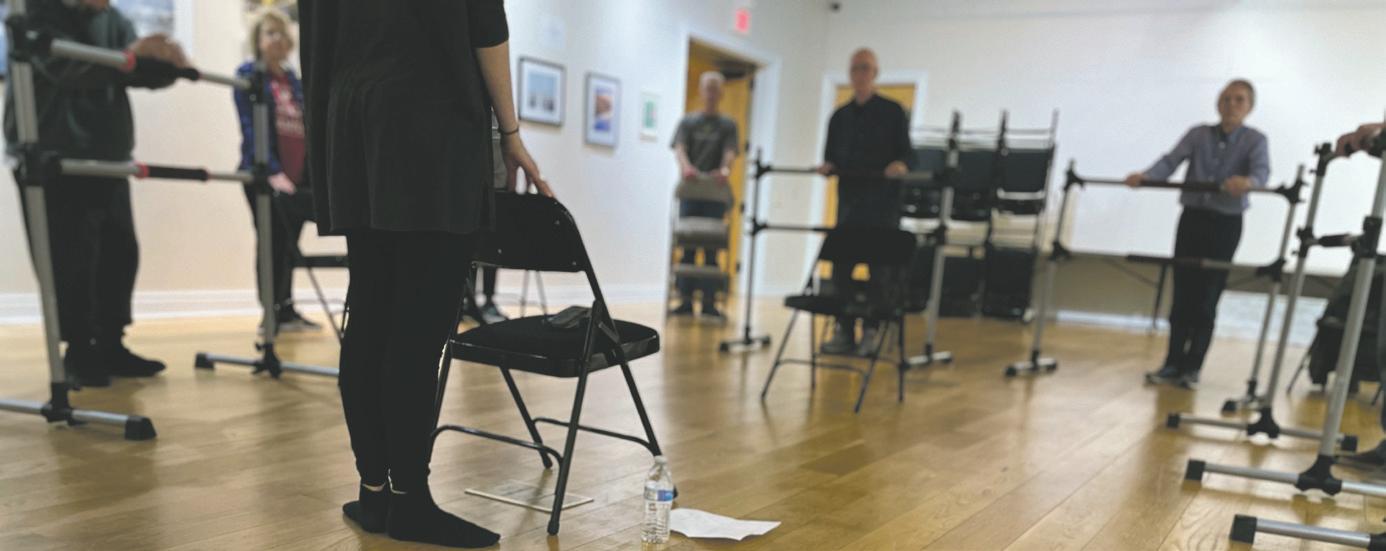
Stanislawczyk noted her interest in the correlation between the condition and dance came when her grandfather was diagnosed with Parkinson’s disease, leading her to research the topic in college and then cultivate it further at MMDG.
The concept spread beyond Princeton— influenced in part by Stanislawczyk’s personal connection to the condition—and even survived the transition to a virtual format during the pandemic before returning to all studios except Cranbury.
Stanislawczyk also returned to school, receiving an Ed.M. in dance education from Rutgers University as well as a K–12 teaching certification. The Edison resident is currently a full-time dance instructor for students at David Brearley Middle and High School in Kenilworth.
“I decided that I would go back to school for education so that I could provide students with a program similar to the one that

I went to when I was in high school,” Stanislawczyk said, noting that she went on to perform professionally with Mack’s group and still teaches at her dance studio.
“Throughout my life, I’ve always had a passion for sharing what I love about dance and sharing my own personal experience with [those] who are new to the form. That’s why I teach in a school, why I teach Dance for Parkinson’s, is to spread the humanistic response that I think dance provides to a community.”
The Parkinson’s Foundation, an organization that supports the Dance for Parkinson’s at ARB program through a community grant, describes the disorder as one
“that affects predominately the dopamineproducing (“dopaminergic”) neurons in a specific area of the brain called substantia nigra” for “more than 10 million people worldwide.”
The NIH National Institute on Aging website added that symptoms “usually begin gradually and worsen over time,” including “unintended or uncontrollable movements, such as shaking, stiffness, and difficulty with balance and coordination.”
Others experience “difficulty walking and talking,” as well as “sleep problems, depression, memory difficulties, and fatigue.”
When cells in the brain die or are unable to produce a sufficient amount of dopamine, Stanislawczyk explained, dancing can prove to be a powerful influence.
“Dopamine is the movement base, the feel-good hormone in our brain, and when you dance to live music, it naturally produces dopamine in the brain,” she said.
According to a 2021 UCLA Health article by Chayil Champion, researchers at York University in Toronto, Canada, tracked 16 people with Parkinson’s disease as they attended weekly dance classes for a three-year period between 2014 and 2017.
These participants not only saw “an improvement in speech, [a] reduction in tremors, better balance, and decreased rigidity,” but “showed no deterioration over
All class participants will have the opportunity to perform an adapted version of the Mark Morris Dance Group’s “Falling Down Stairs” choreography at the Richardson Auditorium in Alexander Hall in Princeton on Sunday, March 3.
the three-year period, while the other 16— those who did not participate in the dance classes—experienced a decline in their motor skills.”
“Dance triggers the brain in a different way so that they’re able to waltz, they’re able to march out of the room, because instead of just reaching and trying to pick up a pencil or to do a daily task like pouring a cup of coffee, when you’re doing that and you’re dancing, and you think about sweeping the arm up overhead and grabbing onto something, pulling and pushing, and using that imagery, it triggers the brain in a different way; it provides agency to the people sitting in the room that’s unfortunately being stripped away from them,” Stanislawczyk said.
While participants may feel varying levels of therapeutic relief throughout the course, Stanislawczyk stressed that the class is not dance movement therapy. In fact, the topic of Parkinson’s disease is rarely discussed, with the emphasis instead placed on the core values of creativity and choreography at the heart of any traditional dance class.
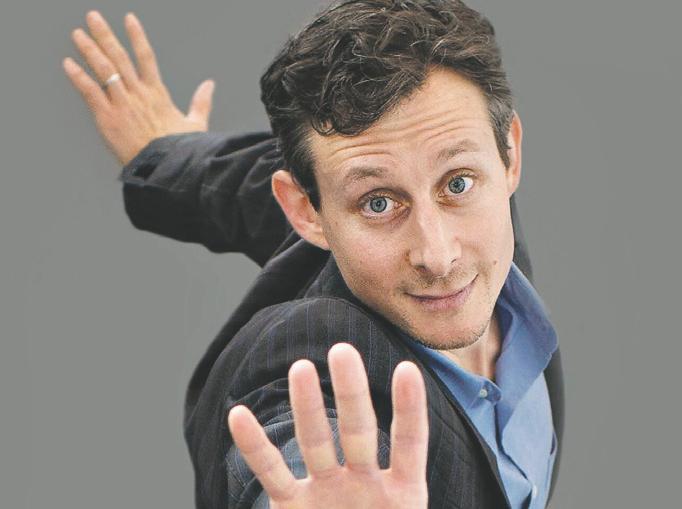
“We treat the participants like artists,” she said. “We don’t want them to feel like they’re coming here and going to another doctor’s office. We strip that all away.”
Each class lasts around one hour and fifteen minutes. Participants begin by sitting in a circle of folding chairs with the lead and assistant teacher in the center, the latter of whom modifies the exercises as everyone moves through the motions against the backdrop of live instrumental music.
Throughout the session, attendees have the option of progressing to standing or remaining seated, with Stanislawczyk adding that if something she’s doing doesn’t feel right to them on that particular day, they are encouraged to adjust the exercise in any way they need.
When learning the basic steps of the Dominican Republic social dance known as bachata, for example, participants started at the bar and were subsequently given “the option of moving freely through the space without” relying on structural support.
“We start with a sun salutation exercise, and then we use a lot of percussion to warm up our feet. We use movement from a variety of different dance styles and forms, so one week we might have a salsa dance focus, the next week we might do a ballroom waltz, and the next week we might do jazz, ballet,” and other types that incorporate a variety of cultural influences, Stanislawczyk added.
“We play a lot with the seasons, or if a holiday is coming up, then we might create movements for Valentine’s Day, or we’re going to be incorporating a lot of apple picking and pumpkin picking and leaves falling from the trees,” she explained, noting that every day tends to follow a theme.
The Princeton University Concerts “Healing with Music” event features live accompaniment by cellist Joshua Roman, left, while the founding teacher and program director of the Mark Morris Dance Group’s Dance for PD®, David Leventhal, right, takes part in a panel discussion on the intersectionality of “music, dance, and Parkinson’s disease” with Princeton University faculty.
“There’s a lot of guided imagery that drives the class,” she said. “The visualization, I think, helps for this population, [because] if they are thinking about squeezing toothpaste out of their leg or tracing like they’re inside of a pumpkin and they’re carving the pumpkin from the inside out, it adds a different dynamic quality to their movement.”
“We do a lot of mirroring in this class, a lot of improvisation, and traveling through the space, and then we always end class with a reverence that we call ‘Passing of the Gift,’ and participants get to improvise, and they create their own ‘gift,’” she added.
It’s almost like charades, Stanislawczyk explained, where a first person “might blow a balloon with their hands and then show how it’s floating” before passing it onto the next individual standing in the circle, who then “has the power to transform that into anything they want.”
“Maybe they turn it into a flower, or maybe they bake cookies, and it goes around the room,” she continued. “We incorporate a lot of circles in this class for community. Circles have been traditionally used in dance throughout history to make sure that everybody is inclusive. You’ll see circles in a lot of ritualistic dances, and it means that we’re all equal and we’re all in this together.”
Stanislawczyk strives to create a “very casual and warm learning environment” through her teaching style, taking participants on a journey of exploration and vulnerability that hopefully “resonates in the room and makes everybody feel comfortable to take risks.”
While the physical aspects of the class are valuable in their own right, Stanislawczyk believes that the emotional rewards of being able to “equally nourish their soul[s] with dance” are felt on both sides of the instructor-dancer relationship.
“It’s one thing to teach children, but when you teach an adult, they are coming to the class for themselves, and they’re so grateful for the opportunity to dance, and so it’s a community that I really resonate with
because they’re so appreciative. As much as they love me, I love them,” she said.
“I get just as much from these classes as they do, and I truly believe that—that this is my happy place that I come to for the hour and 15 minutes that we spend with each other each week. It fuels me as a human being.”
Stanislawczyk finds it refreshing that the class fosters such close relationships between people from different backgrounds, each of them coming with their own unique mosaics of life experiences, in a communal space where bonds are forged through mutual respect and rhythmic activity.
“I constantly think about how, in our society as a whole, we’re constantly attached via technology. We’re not really having these human-to-human relationships, and so when you meet somebody and you’re moving together—I mean, it’s scientifically proven that your mirror neurons are turned on and that it develops empathy for one another—and I think that it develops a really strong foundation for a community of trust.”
Stanislawczyk emphasized that it is more important than ever to be engaged and present with others, a lesson she reiterates in class: “Look around and see the people that you’re moving with and that you’re dancing with, and that goes a long way.”
“It’s not often that we come together and we move together, and I think that it’s a powerful thing—a group of people moving in unison in today’s world [where] we’re just constantly with our heads down and typing on the computer and not making eye contact, etc.,” she continued. “We’re really listening to each other and responding to each other authentically.”
“When people are diagnosed with Parkinson’s disease, it can be very isolating. A lot of people lose agency to do simple tasks that we take for granted,” Stanislawczyk explained. “When I’m designing the classes, I try to incorporate everyday movements that we can practice and rehearse in here to live musical accompaniment, and then participants can adopt those movements into their daily lives. I use a lot of imagery, for instance, about flicking water off of the hands. I try to think about the relationships of how that relates to a common hand tremor that you may see with Parkinson’s disease.”
“I think that this class breaks away that sense of isolation, and it makes everybody feel included, including myself,” Stanislawczyk added. “I feel like I get as much out of the class as all of the participants, because it feeds my soul.”
***
Dance For Parkinson’s, American Repertory Ballet. Fall sessions available at the Princeton Ballet School, 301 North Harrison Street, Princeton; Middletown Arts Center, 36 Church Street, Middletown; and via Zoom. arballet.org/access-enrichment/programs-2/ dance-parkinsons-program.
“Dance for PD® (Parkinson’s Disease) A Mark Morris Dance Group Program: Exploring the Intersection of Music, Dance & Parkinson’s,” ARB and Princeton University Concerts, Sunday, March 3, 3:00 to 4:30 p.m., Richardson Auditorium in Alexander Hall, Princeton. concerts.princeton. edu/events/23-24-dance-for-pd

609.849.5999









Here for You for More Than Half a Century Radiology Affiliates Imaging Here for You for More Than Half a Century Radiology Affiliates Imaging has been here for you for over 50 years, and we will continue to be here for you when you need us most. Today more than ever before, we know health should never be taken for granted. Screening exams are an important part of keeping you and your family members healthy. Early detection has always been and remains key to diagnosis, treatment, and survival.
Delayed diagnosis leads to the identification of disease at later stages. With more advanced diseases, the prognosis usually is not as good, and the care needed is more expensive and disruptive to patients’ lives. Radiologists, who identify and diagnose diseases, are helping to remind patients about how important it is to schedule well visits, screenings, and follow-up appointments. RAI offers several screening studies to referring physicians and their patients. These include Coronary Calcium Score, CT Lung Cancer Screening, 3D Mammography, and Bone Density (DEXA). Preventative screening can provide physicians with valuable information before symptoms are present, which can then allow them the ability to
October 13-15





New Brunswick Performing Arts Center

successfully identify or control health issues. Annual screening studies can also turn worry into peace of mind for many patients, especially those who are high risk or have a family history of disease. RAI offers expertise in all areas of imaging for all members of your family. Our board-certified subspecialty radiologists offer expertise in women’s imaging, interventional radiology, musculoskeletal and diagnostic radiology. Whether you need an MRI, CT, Ultrasound, Mammogram, or X-Ray we offer the latest in imaging technology and interpretation. We also have a new 3T MRI available in our Lawrenceville office. In the last 50 years, RAI has earned our place amongst the largest and most respected radiology groups in our area. Continuing with our long-standing traditions, RAI will strive to provide the most up-to-date imaging technology and highest level of quality and service to our patients. One area where we closely monitor innovations is Artificial Intelligence (AI), which is still in the early stages of development. As technology matures, it will continue to enhance the radiologist’s reading capabilities, help them obtain better patient histories,


and automate our processes. We will continue to help all of the medical professionals with whom we work improve the quality and value of the care that we provide the community. Our demonstrated commitment to elevating the level of care available close to patients’ homes remains as strong as ever.
Radiology Affiliates Imaging, 2501 Kuser Road, Hamilton. 3120 Princeton Pike, Floor 1A, Lawrenceville. 609-585-8800. www.4rai.com. See ad, page 8.





Halloween is just around the corner; a scary time for kids, and a scarier time for their dentists. Your friends at Hamilton Dental Associates suggest, It’s OK to eat that candy on Halloween but it’s important to have a plan. Here’s what families can do to keep their teeth healthy during the spooky season. October is also National Dental Hygiene Awareness Month so here is a plan to help oral care during the scare season!

Sticky Situations. Chocolate is one of the most common candies during Halloween. Fortunately, chocolate washes off your teeth easily, and darker chocolates have less sugar. For the stickier treats, however, stay picky. Candy like taffy, gummy bears, and hard candies stay in your mouth much longer than chocolate, which gives cavity-causing, tooth-decaying bacteria more time to
work. It’s tempting to keep that candy around, but your dentists will thank you for limiting your stash.
Free Trade. Always inspect the loot after trick-or-treating for anything unsafe (allergens, tampered wrappers, choking hazards, etc.). We also recommend proposing trades for downsizing the children’s sugary stashes. For sticky candies, especially, try trading them for new toys, movie tickets, or your pieces of chocolate. Family fun and health are
not mutually exclusive here.
Blowing Bubbles. Chewing gum might be your best friend this Halloween. Find your favorite sugarfree gum and keep it handy. Gum stimulates saliva production, naturally rinsing the mouth and preventing plaque. Chew after each meal or snack for optimized oral health.
Favoring Fluoride. Fluoride is a natural mineral that prevents cavities and tooth decay, especially in early development. It can be found in

toothpastes and most bottled water. For additional supplements, talk to us at Hamilton Dental Associates about fluoride mouthwash, tablets, or gels.
Increasing your children’s fluoride intake can help combat any sweet tooth this season.
Practice Makes Perfect. With all of the pumpkin flavoring and sweet treats, it’s hard to think about oral hygiene.

For the best long-term outcomes, though, it is necessary to establish a strict, consistent routine. This means brushing and mouthwash at least twice a day, cleaning in-between teeth, limiting sugary beverages and snacks, and drinking plenty of water. Have the kids pick out their favorite toothbrush and 3-minute tune for a family-fun, tooth-brushing time.
If you are looking for a partner to help with your child’s oral care or looking for a long term plan, contact Hamilton Dental Associates to set up an appointment today!

Hamilton Dental Associates, 2929 Klockner Road, Hamilton Square; 609-359-0063. 2501 Kuser Road, Hamilton; 609-403-3217. www. hamiltondental.com.


See ad, page 8





Dr. Gianna Bigliani, PT, DPT, OCS, CSCS, owner and founder of Fluid Physio is excited to help people move more comfortably.

about Fluid Physio is that we can get fast results.. We are different than any other physical therapy practice because of our approach: a full hour of one-on-one specialized manual therapy treatment that will return you to pain-free optimal performance and function much faster than others.”
University in 2003 and became a certified strength and conditioning
specialist, complimented by her Doctor of Physical Therapy degree. She became a certified orthopedic specialist. She worked with athletes of all ages (including children) and abilities (including at a professional
restrictions it previously had so that the effect of the therapy is lasting.”
“Every patient is an athlete at Fluid Physio,” she says. “Our goal is to maximize your performance in the activities you love, whether they are on the water, on the road, on the field, or on the floor.”
“I often treat hips and backs in the winter when people slip and fall on snow or ice. Also, they can hurt their backs raking leaves or shoveling snow. Another condition I often treat is foot pain.”
She gives her clients “homework,” “Each patient gets specific exercises and movements to do at home according to their needs and goals.”
“We’re not created to be sedentary. It’s good to be physically active.
I chose the name Fluid Physio because ‘fluid’ is how movement should be. Physio is how the rest of the world refers to physical therapy. I also like water and how the water moves, so I thought fluid physio was quite appropriate.”
Fluid Physio, 160 Lawrenceville Pennington Road, Suite 16, Lawrence. 609-436-0366. Fluidphysio.com. See ad, page 7






At RWJBarnabas Health, together with Rutgers Cancer Institute of New Jersey, the state’s only National Cancer Institute-designated Comprehensive Cancer Center, we offer the latest in comprehensive breast health services including mammograms, 3D mammograms, breast MRI, genetic testing, breast surgery and more — like peace of mind. And with breast health centers conveniently located throughout New Jersey, finding us is simple, too. Schedule your mammogram at rwjbh.org/mammo




At AllCure, we understand that the summer can come with a lot of fun and activity. Often, we experience that patients will put off their pain concerns until the summer is over and plan to address them in the fall.
At AllCure, we will do assessments to see where each person can benefit from our level of care. We offer chiropractic, physical therapy, and acupuncture services to provide high-level of conservative care to the community.
Our office also provides stateof-the-art modalities to assist each provider in getting patients back to a higher quality of life. We also have X-ray on site to help diagnose the patients pain and discomfort. We offer 10 minute free consultations for anyone interested to make sure they feel comfortable and to ensure that we can help.
We take pride in what we do and we make sure that each patient gets

a high level of attention and care on each one of their visits. We make our plans specifically to fit each individual person‘s needs and do not offer blanket treatments for similar patient complaints.
We have offices conveniently located in Monroe, Hamilton, and









Somerset, NJ. Please visit our website or give us a call today to come in for a free consult, and get back to the quality of life you deserve.
AllCure Spine & Sports Medicine, 140 Cabot Drive, Suite A, Hamilton. 609-528-4417. 350 Forsgate Drive, Monroe Township.

Brothers Anthony Alfieri, DC, left, and Victor Alfieri, DPT.
732-521-9222. 1101 Randolph Road, Somerset. 732-823-9392. www. allcurespineandsports.com. See ad, page 11
Saturday, October 14th 2023
12pm to 6pm
Gather your friends for a day of Food Trucks and Live Music... Purchase a Tasting Ticket to sample over a 100 di erent Beers, seltzers, wine and spirits. Purchase tickets at



www.CJBeerFest.com Today
















Mini Dental Implants (MDIs) have changed the face of implant dentistry. Unlike traditional implant placement, where multiple dental visits are often required, MDIs can eliminate the need for extensive surgery. The most common use for MDIs is the stabilization of dentures and overdentures. MDIs firmly anchor the dental prosthesis, which means there is no longer a need to suffer with ill-fitting, loose and ANNOYING dentures!
MDIs are designed to eliminate elaborate bone grafting and to expedite treatment. Traditional implants may require significant bone grafting and a longer recovery period. The latent period allows the anchor of the implant to properly embed itself into the jawbone. The smaller size of MDIs means that no recovery period is possible, and the denture can be fitted the same day.
What are the advantages of MDI placement?


MDIs are a true innovation for people who are reluctant to have invasive dental surgery and who are suffering denture wearers. One significant advantage MDIs have over traditional implants is that they offer a viable treatment choice for patients who have experienced extensive bone loss. Depending on the quality and density of jawbone available at the implant site, four or more of these mini implants may be implanted at one time. The most common use for MDIs is to stabilize a lower denture, however they can be placed anywhere in the mouth.
Other advantages associated with MDIs may include:
• Better smelling breath
• More self-esteem
• Clearer speech
• Easier chewing and biting
• Easier cleaning
• Firmer denture fit


• Good success rate


• Less denture discomfort
• No cutting or sutures
• No need for adhesives or messy bonding agents
• No rotting food beneath the
is a condition that affects millions of Americans, commonly resulting in pain, tingling, numbness, and other painful symptoms in the hands, legs and feet. This pain changes your life and affects how you work, how you play and how you live.
NEW
• No slipping or wobbling
• Quick treatment time
• Reduced costs
AllCure Spine and Sports Medicine is pleased to announce their new program for treating Peripheral Neuropathy, which includes a combination of advanced FDA-cleared treatments with breakthrough technology that aids in healing the damaged nerves. The effects of this program can be felt on the first few visits. This treatment restores, stabilizes, and rebuilds the nerves in your extremities. Treatment has also been effective in addressing painful symptoms of arthritis, MS, and other forms of chronic pain. Patients generally feel relief physically throughout the treatment period and even feel better emotionally after experiencing a reduction in pain.
How are mini dental implants placed?
The whole mini dental implant placement procedure takes approximately one hour. Generally, in the case of lower jaw implants, four to six MDIs will be placed about 5mm apart. Prior to inserting MDIs, Dr. Mosmen will use many diagnostic and planning tools to find the optimal location to implant them.
HOW DO YOU KNOW IF YOU HAVE NERVE DAMAGE?
Peripheral neuropathy is the consequence of damage to your peripheral nerves. There are over 100 different kinds of peripheral nerve disorders or neuropathies – some are the result of a disease like diabetes, while others can be triggered by a viral infection. Still others are the result of an injury or compression on the nerves. No matter where the problems begin, it is imperative nerve disorders are resolved as soon as possible to prevent


is a condition that affects millions of Americans, commonly resulting in pain, tingling, numbness, and other painful symptoms in the hands, legs and feet. This pain changes your life and affects how you work, how you play and how you live.
NEW CBD OIL TREATMENTS NOW AVAILABLE!
CBD oils Have had successful results with treating patients with Inflammation, muscle, joint, and nerve related pains. CBD is a especially promising due to its lack of any intoxicating effects and lower potential for side effects compared to many other pain medications. At AllCure, we want to maximize patients efforts in getting them back to the quality of life that they want and deserve, and CBD treatment is the newest tool to help us do so. Please call us today and we will be happy to answer any questions
AllCure Spine and Sports Medicine is pleased to announce their new program for treating Peripheral Neuropathy, which includes a combination of advanced FDA-cleared treatments with breakthrough technology that aids in healing the damaged nerves. The effects of this program can be felt on the first few visits. This treatment restores, stabilizes, and rebuilds the nerves in your extremities. Treatment has also been effective in addressing painful symptoms of arthritis, MS, and other forms of chronic pain. Patients generally feel relief physically throughout the treatment period and even feel better emotionally after experiencing a reduction in pain.
After placement, a denture will be modified and affixed to the MDIs. The rubber O-ring on each MDI snaps into the designated spot on the denture, and the denture then rests snugly on the gum tissue. MDIs hold the denture comfortably in a tight-fitting way for the lifetime of that implant.
HOW DO YOU KNOW IF YOU HAVE NERVE DAMAGE?


Peripheral neuropathy is the consequence of damage to your peripheral nerves. There are over 100 different kinds of peripheral nerve disorders or neuropathies – some are the result of a disease like diabetes, while others can be triggered by a viral infection. Still others are the result of an injury or compression on the nerves. No matter where the problems begin, it is imperative nerve disorders are resolved as soon as possible to prevent permanent damage. Many people suffer with pain for years, not realizing that their symptoms may be due to Peripheral Neuropathy. Symptoms start gradually, then get worse, including numbness, burning or tingling sensations and sharp, electrical-like pain. Treatment options have been limited to a small assortment of pain medications, which can lead to further issues. Ignoring the problem or masking the symptoms has never been a viable solution. If you suffer from any of the aforementioned symptoms, we can help.
NEW CBD OIL TREATMENTS NOW AVAILABLE!
CBD oils Have had successful results with treating patients with Inflammation, muscle, joint, and nerve related pains. CBD is a especially promising due to its lack of any intoxicating effects and lower potential for side effects compared to many other pain medications. At AllCure, we want to maximize patients efforts in getting them back to the quality of life that they want and deserve, and CBD treatment is the newest tool to help us do so. Please call us today and we will be happy to answer any questions
In almost all cases, no stitching is required, and no real discomfort is felt after the procedure. When the denture placement procedure is complete, light eating can be resumed. The denture can be removed and cleaned at will. MDIs enhance the natural beauty of the smile and restore full functionality to the teeth.
If you have any questions about mini dental implants, please call Dr. Kevin Mosmen for a FREE consultation appointment to see if you’re a candidate for this procedure or traditional implants.
The Dental Difference – 2131 Route 33, Suite A, Hamilton, NJ 08690. 609-445-3577. www. thedentaldifference.com. See ad, page 12.
*Expires
allcurespineandsports.com We accept most major insurances and medicare!
AllCure Spine and Sports Medicine is pleased to announce their new program for treating Peripheral Neuropathy, which includes a combination of advanced FDA-cleared treatments with breakthrough technology that aids in healing the damaged nerves. The effects of this program can be felt on the first few visits. This treatment restores, stabilizes, and rebuilds the nerves in your extremities. Treatment has also been effective in addressing painful symptoms of arthritis, MS, and other forms of chronic pain, Patients generally feel relief physically throughout the treatment period and even feel better emotionally after experiencing a reduction in pain.
NJ 08831

Annual mammograms can detect breast cancer early when the prognosis is best.
More than 85% of women diagnosed with breast cancer have no family history of the disease.

About 1 in 8 women will be diagnosed with breast cancer during her lifetime.
Male breast cancer accounts for less than one percent of all breast cancer diagnoses. Women should begin getting an annual mammogram at age 40.
Dense breasts may increase your risk for breast cancer.
There are more than 3.8 million breast cancer survivors in the United States. Having your first menstrual period before age 12 or starting menopause after age 55 increases your risk for breast cancer.
Let’s beat breast cancer together.

My name is Chrissy Kohut and I am a self-care specialist. I coach women on how to create an attainable and sustainable self-care practice for their whole-self; mind, body, and spirit so they no longer are muttering the words “What about me?”.
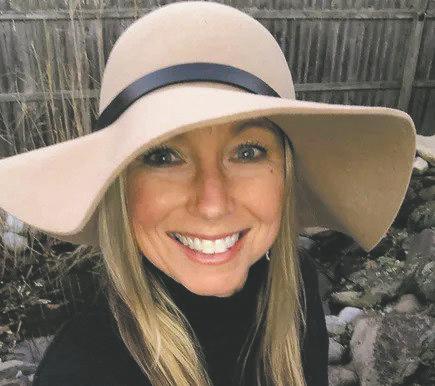
When you create a daily self-care practice you can alleviate or even eliminate anxiety, stress, emotional breakdowns, burnout, and possibly avoid illness during the difficult seasons of your life.
But, what I love the most about having a daily self-care practice is that through your daily practice you learn how to stay grounded and in gratitude while being fully present when you are going through good seasons of life. Daily self-care creates a journey to healthy and happy lifestyle.

I also own a wellness boutique in Pennington, NJ that offers self-care classes, self-care workshops, gentle yoga, reiki, and self-care coaching. These offerings are available to help you on your journey to “A Healthy and Happy You.”
I created, “A Healthy and Happy You” to empower women to find a deeper knowing with in themselves that it’s ok to be imperfect. We are all so imperfectly perfect! The world needs you to be that unique and special person you were born to be. There is a way to get the healthy and happy life you’ve always wanted. And the secret to that life is simple…You!
I know it sounds too good to be true, but you are the secret. I am here to help you create the life you’ve wished for by teaching you daily self-care practices and offering services that can help nourish, heal, and relax your mind, body, and spirit.
Chrissy Kohut
As a mother, wife, grandmother, dog mama, and former teacher I can relate to being overwhelmed. The feelings of burn out, being completely stressed and living on emotional roller coaster are things I’ve experienced. I want to share the tips and tools I have learned that have helped me to create a daily self-care practice for my wholeself. Am I always happy and smiling? Hell No! But I have learned through the years from various teachers, coaches and mentors how to build my own self-care toolkit of rituals and habits to elevate my life. This toolkit helps to pull myself out of feelings of despair and back into aligned happiness. It’s because of my daily practice that I no longer mutter the words, “What about me?” But instead enjoy living a healthy and happy lifestyle.
It’s ok if you feel like you’re falling and have lost your way. You are not alone. Those thoughts and feelings have happened to most of us. It may not be easy and it will take some work. But in time, you will find your way back to, “A Healthy and Happy You” and I am here to help you along your way.
A Happy and Healthy You,1613 Reed Road Suite A-1, Pennington. 609-493-7599. www.ahealthyandhappyyou.com. See ad, page 7






The Hamilton Township Division of Health wants you to protect yourself and your family this fall and winter from respiratory illness such as flu, COVID-19 and RSV.




Practice healthy habits such as washing your hands, staying home when you are sick, avoiding close contact with others who are sick and staying up-to-date with your vaccines!
The new RSV vaccine is available for certain individuals, including adults over the age of 60 and pregnant people, talk to your doctor for more information about the RSV vaccine. Everyone ages 6 months and up is eligible for the updated COVID-19 vaccine, visit vaccines.gov to find a provider near you!
Also, remember to get your annual flu vaccine this fall!
Hamilton residents can come to the public flu vaccine clinics hosted by the Hamilton Township Division of Health. Visit www.HamiltonNJ.com/flushots or call 609-890-3884 for the schedule.





















Four of seats on the Hopewell Valley Board of Education are up for a vote this year — all in Hopewell Township.
Three of the seats are full three-year terms on the board. Incumbents Andrea Driver and Anita Williams Galiano, both elected for the first time in 2020, are up for re-election. Long-time board member Adam Sawicki is not running for re-election.


Also running for the three-year seats are Pamela Lilleston, John Slotman and Aileen Matticoli. Lilleston is a current member of the board, having been appointed earlier this year to fill the unexpired term of former board president Deborah Linthorst.
Andrea Driver, 48, is an 8th grade English language arts and social studies teacher. She has lived in Hopewell Valley her whole life. She and domestic partner Lawson McElroy II have three children: CHS grads Hailey and Brooke Driver and CHS senior Lawson McElroy III.
Pamela Lilleston, 41, is director, Office of Applied Research and Evaluation, state Department of Children and Families. She has lived in Hopewell for six years. She is married to James Noe, and they have two children who attend Hopewell Elementary School: Kai and Hope. Lilleston has a doctoral degree and master’s degree in public health from the Johns Hopkins Bloomberg School of Public Health and a bachelor’s degree from Georgetown University.
Aileen Matticoli, 47, is an office administrator who has livedin Hopewell for 21 years. She and husband Dave have three children; two attend Hopewell Valley Central High School and one attends Timberlane Middle School.
John Slotman has lived in Hopewell Township for a decade. He and wife Jessica have a fifth and a sixth grader in the district. Slotman did not provide his age.
Anita Williams Galiano, 57, is a business consultant who has lived in Hopewell Valley for 23 years. She is the mother two two Hopewell Valley graduates: children
Matthew and Alicia.
Two candidates are running to fill the year that remains on Lilleston’s term: Mark Austin and Dhruv Kapadia. Austin did not respond to multiple requests from the Hopewell Express to participate in this Q&A.
Dhruv Kapadia, 21, is a soon-to-be graduate of Boston University. He has lived in Hopewell Township since 2004 and attended HVRSD schools from K to 12. Kapadia is the son of Amit and Renu Kapadia. His elder brother, Kunal, also attended HVRSD schools.
The Hopewell Express emailed questionnaires to the candidates and asked for their responses. Their answers can be found below, edited as little as possible for length, grammar or clarity.
Tell us about the moment that you decided to run, or run again, for school board.

Andrea Driver: I made the decision to run for school board when I realized our community, state, and country were in a state of yearning for change. I strug-
gled to determine the role I could play in order to help make and influence positive change. I care deeply about my community and felt compelled to get involved. I strongly believe the route to change is through education. Coming from generations of lifelong community members, as well as a professional educator, running for school board appeared to be the most logical choice.
Pamela Lilleston: I was appointed to the school board in January 2023 and quickly came to understand the meaningful impact that a thoughtful, hard-working and collaborative school board can have on the lives of children and families. I also saw the unique value I bring as a public sector leader and scientist with experience making data-driven decisions in a complex environment, a parent of young students in Hopewell’s schools, and an advocate for child and family well being.
Aileen Matticoli: I decided to run for school board after observing recent meetings. This spring the board unani-
See SCHOOL BOARD, Page 16
mously voted to approve the budget, which included pausing the elementary STEM program, and like many parents I was caught off guard by the perceived lack of transparency in their decision. Often motions are passed unanimously with little discussion or dissent. We need someone with a fresh perspective to join the board, and I feel I can serve in that capacity.
John Slotman: Our family has long been active in our community, whether on the field or court, on the stage, or volunteering with the PTO as room parents. I have a strong commitment to community service, and I believe I can bring a new and fresh perspective to our Hopewell Valley Board of Education. A single moment that cemented my decision to run this November was the recent decision to reduce STEM-specific education in our elementary schools.
Anita Williams Galiano: I’m a mother and businesswoman and I have witnessed how national politics can negatively influence local communities. I’m driven to ensure our educational environment remains champions every child. With expertise in communication, I’m dedicated to upholding high educational standards,



nurturing future leaders, and ensuring equity for all students. I’m running for the school board to nurture space for diverse viewpoints and prioritize the well being and success of each child in our district.
Kapadia: I am running to bring a young, progressive, student-centered perspective to our school board. Throughout my time as an HVRSD student, I found the board ineffective in addressing “onthe-ground” student issues relating to social justice, community-building, and ensuring post-graduate success. Additionally, Asian students represent our fastest growing demographic, and the Board has not featured a South Asian representative. For these reasons, I am running for our school board on three principles: Equity, Community and Success.
Grade the job the school board has done in recent years. What can you as a member of the school board do to maintain or improve this grade?
Driver: I’ll leave it to my fellow community members to grade the work we’ve been doing on the school board. I will say that we are doing work we believe in, and that there’s always room for growth. The greatest thing about HVRSD is that we are always willing to learn. The district has a stellar reputation. We do what
is right, even when it isn’t easy. We get ahead of the curve, addressing things head on in a way that is consistent with the values outlined in our mission.
Lilleston: The pandemic and its aftermath have presented schools with some of the most complex challenges they have ever faced. In these unprecedented times, our school board and Administration have done an excellent job balancing state and federal guidance with the voice of the community while keeping student and staff health and wellbeing central in decision-making. We’ve also set ambitious, forward-looking goals for the year ahead focused on meaningfully engaging the community in important conversations, addressing students’ health and emotional wellbeing, planning for environmental sustainability, and improving equity within our schools.
Looking forward, I will support these goals by leading with evidence and transparency and ensuring our values as a community and District are integrated into our policy and budget decisions.
Matticoli: I would give the school board a solid B. We have consistently ranked as a top district in our area and were one of the few districts to offer in-person learning during the pandemic. However, there
are few areas where we can improve. We should strive for student excellence by targeting our instruction to the individual needs of each student. We need more opportunities for open discussion between the board and community through informal coffee chats or community forums. We should involve our community in DEI initiatives so that every family feels valued and respected. With the population increases from new developments and rising operating costs, we need to create a sensible budget. If elected, I will work to achieve these goals.
Slotman: I would give the board of education a C grade in the last few years. While in the day-to-day HVRSD has, in general, continued to run relatively smoothly, there are several areas where improvement could be considered. First, Board of Education and HVRSD communication is often inconsistent, fragmented and missing key details. District communication could be more regular, and major Board decisions could be communicated in a fashion that fosters collaboration with district families.
Second, five out of six HVRSD learning facilities have undergone a leadership change in the last school year. This upheaval in leadership has left many
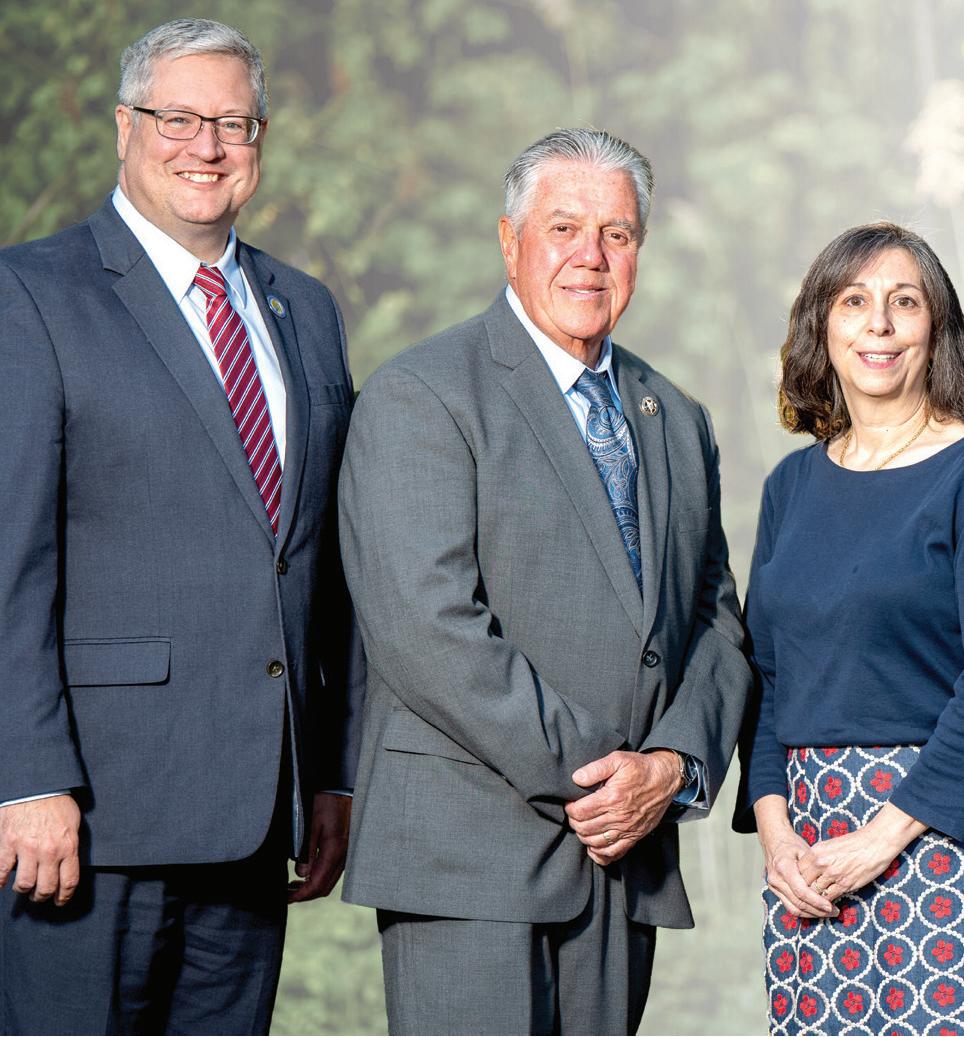
parents uneasy and oftentimes caught off guard with significant changes. Understanding that change is inevitable, HVRSD and the Board of Education could have done more to reassure families as these significant changes were made. I will strive to drive enhanced HVRSD transparency and communication for Hopewell Valley families and educators.
Williams Galiano: I believe HVRSD school board has performed well and would merit a solid grade of a B. Working with the administration to balance post-pandemic school resumption, budgetary management in recessionary times, and insuring we maintain an excellent teaching staff are laudable achievements. Supporting work to successfully staff the district’s transportation department, as well as the effort it takes to delivery above-average services for uniquely abled and neurodiverse students is noteworthy.
However, there’s room for improvement in working through the finance committee to tackle building maintenance backlogs, increase community engagement supporting healthier school building environments, and addressing students’ mental health concerns. As a board member, I will diligently continue that committee work.
Kapadia: Report card: B. The board has effectively managed the budget to accumulate a substantial surplus, and stayed committed to public health safety guidelines during the Covid19 pandemic. Shortcomings: our board has fallen short in its overly punitive antidrug policy, lack of diversity in both curriculum and teaching staff and overworked CHS counselors’ office.
As a recent HVRSD graduate, I will leverage my knowledge of our district, as well as my strong relationships with faculty and administrators, to create student-centered policy. Whether it is diversifying our curricula, advocating for inclusive hiring practices or creating a young alumni network, I know how to best serve the needs of our student body.
What are two vital issues facing the school board today, and what will you do as a member of the board to address them?

Driver: There is an attack on the values we uphold as a community that are centered in what is best for our students well-being, and that is DEAI and Social Emotional Learning. Actions we engage in for the support of these things are centered in educating the full child. They are essential for their physical and emotional
well being and to prepare them for a very diverse world that they will fully inhabit when they leave our halls.
Likewise there is pushback on teaching our students a complete and accurate account of history, one that examines all the ways in which people contributed to the success of this country, and the ways in which decisions were made that caused harm. Examining all of this affords our students the opportunity to think critically and consider ways in which we can move more powerfully and equitably in the future.
Lilleston: Our country is facing a youth mental health crisis unlike we’ve seen before, with schools on the front-lines. School boards must ensure: the provision of adequate mental health supports to students; and social and emotional learning focused on self-regulation, empathy, and building positive relationships. As a current board member, I address these issues through the Social and Emotional Learning Subcommittee where I help ensure that the policies and budget are in place to provide students with the comprehensive support they need to be successful learners in our schools. I also do and will continue to partner with our school’s administrative staff to determine whether these services are impacting youth engagement in school and to identify opportunities to continue integration of evidencebased best practices.
Matticoli: Two vital issues facing the school board today are student performance and decision-making transparency. As a board member, I will prioritize student performance by supporting a curriculum that exceeds the recently lowered state standards. Our students deserve to explore their interests, engage in challenging coursework, and develop critical thinking skills. For students facing academic or emotional challenges, we need dedicated, knowledgeable teachers and compassionate, well-trained staff members to support them. If elected, I commit to improving the transparency in the board’s decision-making; the community should not feel blind-sided or misinformed as they were last spring during the budget approval. I support more opportunities for open discussions among community members and the board so issues in our schools can be addressed with input from all stakeholders
Slotman: As a new middle school parent, one area where I believe the board of education can lead is on the issue of stuSee SCHOOL BOARD, Page 18

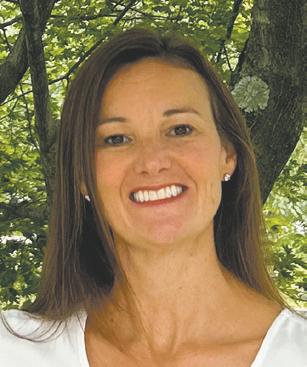
dent and teacher wellness. For example, between an early start time and after school activities, our middle and high school students are for all intents and purposes working an 8-5 job. Add club sports, theater, dance and other activities, and many students inevitably sleep significantly less than needed. Our district has examined pushing back middle and high school start dates; the board should reinvigorate this conversation.
A second area where there may be room for improvement is parent and community communications. More frequent and engaging communication can help working families understand how decisions are made and/or how changing policies will impact learning. If elected, I would seek out and participate in additional events to better engage the community.

Williams Galiano: Community growth and our children’s academic and emotional well being are pressing issues. As a board member, I’ll focus on proactive strategies for community expansion, utilizing data-backed infrastructure plans. Prioritizing our students’ needs, I’ll push for early intervention initiatives, enhanced counseling, and parent involvement workshops. Tackling drug and behavioral
issues requires a comprehensive strategy from educational programs to robust community involvement. Feedback from educators, parents and students, paired with regular policy assessments, will keep us in tune with our community’s needs. I’m dedicated to crafting policies that champion students’ overall well-being and success.
Kapadia: Equity/Inclusion: HVRSD is home to an ever-diversifying student body, with students of color making up more than 25% of our student body. However, our district’s language arts and social studies curricula lack diversity from marginalized identities. For this reason, including more diverse perspectives, both in our books and in our teaching staff, is essential to creating an equitable academic environment.
Drug policy: Rather than punishing students by suspending them from the classroom and effectively disrupting their education, I encourage assigning community service hours as a learning experience. It is also important to teach students in grades 9-12 about drug awareness, rather than stigmatizing the issue. We must shift from the ineffective “Just Say No” policies of yesterday, and embrace the student-oriented policies of tomorrow.
Do you believe that it is important that the board of education work to provide a safe and accepting environment for all students, regardless of race, religion, culture or sexual orientation? Do you support all students’ right to determine their own sexual identity?

Driver: It is essential that the BOE support the work of staff and administrators to provide a safe and accepting environment for all students. I can’t imagine that any well-meaning individual would not. I fully support the rights of students to live and move authentically, especially at school where students spend a large chunk of their days.

Lilleston: Yes, the board of education must work to provide a school environment that is safe and accepting of all students. Beyond being legally and ethically bound to do so, research consistently shows that when children experience school in an environment that is physically and emotionally safe, respectful, responsive and inclusive, they do better academically, are less likely to be absent from school and experience fewer behavioral challenges. In alignment with guidance from the state and in support of safe school environments that are free from discrimination, I support students’ rights to assert their own sexual identity.
Matticoli: Yes, I believe the board of education must provide a safe and accepting environment for all students. Every student should feel respected and valued, which positively impacts their overall well-being and academic success. I do support all students’ right to determine their own sexual identity because everyone’s sexual orientation and gender identity are an integral part of who they are.
Slotman: I am familiar with and support the existing HVRSD policy on this issue. And we should celebrate and respect the individuality of every student. The board of education can and should support the district’s efforts to create the conditions necessary where both kids and teachers feel safe in the learning environment. HVRSD’s primary remit is to provide a safe environment for all children to learn. A safe environment will support student and educator wellness, and wellness is critical to providing this safe learning environment for all students.
Williams Galiano: Absolutely, I believe the board of education must foster a safe and accepting environment for all students, irrespective of race, religion, culture or sexual orientation. A fundamental pillar of education is nurturing self-determination and self-sufficiency. This ethos extends to supporting students in understanding and expressing their identities. It’s pivotal for holistic personal growth. Therefore, I unequivocally
support every student’s right to determine their own sexual identity. By doing so, we uphold the core values of education and cultivate a culture of respect, acceptance, and genuine understanding.
Kapadia: Equity is an integral part of my platform. As our student body grows increasingly diverse, our district must respond with culturally competent resources and policies. During my time in HVRSD, I strived to create an anti-racist environment through diversity initiatives, most notably having Diwali and Chinese Lunar New Year recognized as holidays on calendars. As a board member, I will continue to advocate for greater equity through the following policies: implementing inclusive, representative, and diverse curricula; reforming punitive drug policies and improving drug awareness education; diversifying faculty, staff and administrators through inclusive hiring practices.
I strongly support our students’ right to determine their sexual identity. In a time where transphobia is normalized, we must do all that we can to affirm, support, and uplift our LGBTQIA+ community.
The school district has amassed significant capital reserve (“surplus”) in recent years — almost $7 million, according to the most recent budget. How do you believe this money would best be spent? When should the district begin utilizing this surplus for the benefit of students?
Driver: Think of capital reserve as the equivalent to a savings account. We as community members save money for big purchases and repairs. Things like putting a new roof on your house or buying a new car. School districts need to do the same thing. They need to save money to replace the boiler system at an elementary school, or buy a new school bus because the old one has died or is too old to use to transport students. The business administrator and the board have a 5-year plan, a plan that has detailed projects that surplus is earmarked for. Spending the money on those items is always for the benefit of the students. The district is already utilizing it for the benefit of the students.
Lilleston: It’s expensive to operate a school district — for Hopewell Valley Regional School District, approximately $100 million dollars per year. Just as it is advisable for any household that is fortunate enough to hold some money in savings, school districts must do the same. Infrastructure funding is required to ensure our facilities are continuously safe and appropriate spaces for students. At the same time, we must use the funds available to our district to address our most pressing needs coming out of the pandemic — particularly related to student mental health and learning loss — and to prepare our students for the future
through integration of evidence-based curricula; training in STEM, innovation and critical thinking and social skills for an increasingly diverse world.
Matticoli: Capital reserve is important for good financial management because it allows us to complete facilities projects on time, on budget, and without affecting the tax-payers. It’s also used to cover unanticipated facility and maintenance costs. We have to balance immediate needs with long-range planning when we decide how and when to use the surplus. I believe the surplus would best be spent on essential building improvements, upgrades to energy efficient systems, and technology. But we are on the cusp of a population increase that will drive expensive improvement projects at Bear Tavern far larger than this surplus can cover. We need community input and transparency in the discussions surrounding how we fund those significant improvements.
Slotman: There is no shortage of successful academic and extracurricular activities where our students and educators could use additional financial support. Programs that come to mind are elementary STEM education and bus availability for after-school activities. These popular programs for the Hopewell Valley community have been significantly reduced and/or eliminated in recent school years. Our fulltime STEM educators are amazing teach-
ers who encourage exploration. HVRSD and the board should strongly consider reinstating this program.
For working families, after-school activity pickup may not be feasible during work hours, especially for parents who serve as teachers, law enforcement or health care professionals. The “late” bus may be a budget crunch; however, this service is critical for those working parents whose schedules do not permit them to leave their place of employment during office hours.
Williams Galiano: The $6.9 million in our capital reserve was possible due to reduced operating cost during the Covid shutdown. As there was a return to normalcy, there were also many unknowns. Reopening schools, the rising cost of health insurance, fuel/energy cost, and a generally tenuous economy. There was wisdom to set aside monies in capital reserve and balance it with paying down existing debt. That said, once monies are deposited into the capital reserve, there are strict laws and guidelines mandating its use for capital projects for facilities and infrastructure. While some may debate, the HVRSD administration with board direction by mission and vision believes all facilities work falls under safety, wellbe-
ing, and spaces of growth for our students and community families. Repairing aging HVAC and plumbing systems has ensured a better, safer environment for our current and future community and students.
Kapadia: I believe the capital reserve surplus of almost $7 million should be utilized to benefit our students and enhance their educational experience. We should allocate these funds for: curriculum diversification — developing inclusive and representative curricula that better prepare students for the world outside of the Hopewell bubble. Mental health services — expanding mental health resources and counseling services to support student wellbeing. Community desegregation — investing in relationships with neighboring school districts in Mercer County, one of the most segregated metropolitan areas on the East Coast.
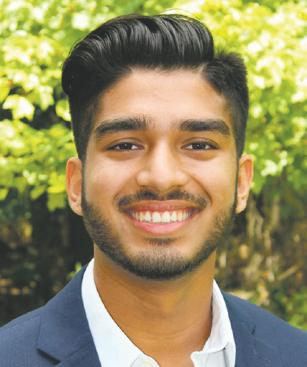
Regarding timing: while it is important to maintain prudent financial planning to ensure the long-term sustainability of these improvements, I believe we must begin utilizing this surplus promptly. Our students’ education and well-being must be prioritized without unnecessary delay.
Despite the surplus, the district has in recent years wrestled with difficult decisions in terms of cutting pro-
grams and staff. Does it make sense that the district has banked so much surplus while struggling to maintain all existing classes and programs?
Driver: Yes it does make sense. The district can’t balance the budget and fund programs on money that is not guaranteed. Once you use up your savings to supplement your income you now have two areas to fund in the future. You now need to balance the budget and rebuild your savings in order to do those big budget repairs and purchases.
Lilleston: Our district is lucky to have an award-winning business administration team led by an expert in school finance and budgeting. In partnership with the board of education, they ensure our district is fiscally responsible while also providing the highest quality education for our students. Unfortunately, our district, like many across New Jersey and the U.S., has faced rising costs associated with inflation, healthcare spending and transportation. At the same time, we are projecting an increase in student enrollment over the next decade and also need to plan for aging infrastructure.
Responsible fiscal planning requires that we ensure adequate funds are available to keep the district running.
Matticoli: Banking a surplus is not necessarily a bad thing, especially if there
See SCHOOL BOARD, Page 19


by Ruger/Kuchinski appointed zoning board woman.
• Ruger/Kuchinski appointed zoning board woman voted to approve development of a hotel complex in the middle of your Mountain Resource Conservation district.
• Ruger/Kuchinski appointed zoning board woman voted to approve a precedence setting varience allowing changing of residential property to commercial use.
• Ruger/Kuchinski appointed zoning board woman voted to allow hotel thousands of gallons of water to be taken every day from taxpayer’s purchased open space to supply commercial use.
are long range projects in the pipeline or future funding for capital improvements is uncertain. But for parents who are spending $500 per child on busing or disappointed by the cuts to STEM at all four elementary schools this year, such programming cuts in the face of a surplus seem unjustified.
I understand that the board needs to strike a balance between fiscal responsibility and meeting the immediate needs of students and staff. They should also clearly communicate their priorities to the greater community.
Slotman: Our school district continues to spend on a per student basis as much as any other school district in the state. Yet, we continue to see board of education deliberations that result in requesting additional funding from HVRSD taxpayers while simultaneously reducing services such as elementary STEM education and “late” bus service for students in sports and other activities. We can and should do better with our annual budget process.
Williams Galiano: It is always a delicate balance between maintaining excellent facilities and providing programming for our students. I am proud to say that while we have had budgetary challenges, the district has not cut any programs due to budget. We have had challenging dynamics to balance, including reshaping STEM programs to give access to all kids and shifting language offerings due to smaller class sizes or the availability of language educators.
Still, thankfully, these were not budget constraints. Finally, it always makes sense to challenge and struggle to balance priorities, as this is how we know we are doing the best for our current and future community and tax-paying stakeholders.
• Ruger/Kuchinski appointed zoning board woman voted to allow hotel to ruin your natural eco systems, pollute your environment, eliminate your peace and quiet and degrade your quality of life.
• FoHVOS made no objections to any of the above. Stop your support of this misguided group.
Kapadia: In my view, it does not make sense for our district to amass a significant surplus, while simultaneously facing the challenge of cutting programs and staff. While having a surplus is a responsible financial practice for unforeseen emergencies, it should not come at the expense of our students’ education or faculty’s working conditions. It is crucial to strike a balance between fiscal responsibility and the educational needs of our students.
The surplus should be a resource to maintain and enhance existing programs, support staff, and invest in our students. It’s essential to ensure that the surplus is used strategically to address the district’s pressing needs, such as enhancing curricula, improving mental health resources, and serving our teaching staff.
Why should voters elect you to serve the next three years on the school board?
Driver: Voters should elect me because I stand for the same things they

believe in. They should elect me because I have been serving on the Hopewell Valley Regional School District (HVRSD) School Board since 2021, and I was elected to serve as Vice President in 2023. I was born and raised in Hopewell Valley, am a graduate of HVRSD, and I also chose to raise my children here. I am a 27+ year educator and understand the delicate balance between providing an excellent education to our students, and being fiscally responsible to our community.
Lilleston: Coming out of the pandemic, we face new, complex challenges in student learning loss, student mental health, and staff burnout. We can solve these problems with courage, collaboration and experienced leadership. As a social scientist focused on child safety and wellbeing, leader in the public sector, parent, and current board member, I have the skills and experience to tackle these challenges using a participatory, evidence-based approach that centers the needs of children and families.
Matticoli: I am a dedicated parent deeply invested in our community and children’s education. Having been actively involved in our community and schools, I have great respect for our teachers and staff, and I value the quality of our public education. Hopewell Valley is a special place, and I am committed to representing all members of our community. With a focus on excellence, transparency, and integrity, I will bring a fresh perspective to the board.
Slotman: I believe my experiences in communications and public affairs along with my interpersonal skills would bring a fresh perspective to the board of education. Our board frequently makes decisions in the dark with - in the view of some - limited community input. I will strive to change that process to ensure our board of education is as transparent as possible on budget, curriculum, and all other issues critical to HVRSD students and families.
Williams Galiano: Electing me to the next term ensures the community has a staunch advocate for diversity and inclusion, ensuring every student thrives. I prioritize transparent community engagement, valuing feedback and concerns. With a forward-thinking approach, I aim for global education standards, consistently placing students’ holisac development at the forefront. My commitment and vision make me an ideal representative for our community’s educational aspirations.
Kapadia: As the youngest, only K-12 HVRSD alumnus, and only South Asian candidate in this election, I bring a fresh, student-centered perspective that will prove beneficial for our district. From spearheading diversity initiatives to collaborating with current board members, I know what it takes to create change in the Valley.
intrigue. The central character is the daughter of Joseph Stalin.
As Betz explains in a statement, “Back in 2016, I learned that Svetlana Iosifovna Alliluyeva (the only daughter of Joseph Stalin) was once living in a house on the same street as my childhood home in Pennington, NJ. Even though she left the neighborhood just a few years before my family moved to town, I was blown away by every last detail. It’s still beyond surreal.
“After learning such an incredible fact, I entered a perpetual state of amazement. I kept inquiring until I learned everything pertaining to Svetlana’s remarkable yet inimitable life. Initially, my main intention was to investigate the reason behind her defection in March of 1967. Since it occurred at the height of the Cold War, the entire world was captivated when such a high-profile individual left behind her life in the USSR to live in the United States under the grounds of political asylum. While Pennington happens to be the epitome of my youth, Svetlana spent most of her childhood behind the red walls of the Moscow Kremlin.
“Before reading Svetlana’s biography by Rosemary Sullivan, my incentive was to inquire the mystery behind the enigmatic yet fascinating life of Stalin’s only daughter. I read several books on the Russian Revolution, Lenin, the Soviet Union, Gorbachev’s glasnost and perestroika reforms, as well as the ubiquitous nature of Joseph Stalin’s haunting yet everlasting personality cult. Svetlana happened to be the only known daughter of history’s most brutal tyrant. However, decades before Stalin’s despotic reign over the USSR, her father was a completely different person.”
“Originally named Iosib Besarionis dze Jughashvili, he left the Georgian Orthodox Church due to his enthusiasm for socialist literature. During his time at the Tiflis Theological Seminary, he befriended a fellow student by the name
of Lado Ketskhoveli, who admired the works of Karl Marx. Long before her father took the name Stalin, or ‘man of steel’ in Russian, he was a Georgian theological student who descended from an alcoholic cobbler and an illiterate seamstress in Gori, Georgia (at the time Stalin was born, Georgia belonged to the Russian Empire). Believe it or not, Stalin’s mother wanted her only surviving son to become a priest. As you can tell, that didn’t work out as planned.
“Due to his cruel, violent, and merciless reputation, it did not take long for Vladimir Lenin to acknowledge Stalin’s bold and intransigent methods. No one knew that he would eventually become the most brutal dictator in world history. By the late 1920’s, Stalin found a way to oust his rivals (especially Leon Trotsky) and consolidate power until his death in 1953.”


A Party on Redd Street, James Betz, 180 pages, $19.99, Farfallina Press.


MERCER COUNTY








2017-2018







































































The County of Mercer will be accepting applications for the Low-Income Home Energy Assistance Program (LIHEAP) for the 2023-2024 beginning October 2, 2023. Mercer County will continueaccepting applications for the Universal Service Fund (USF) Program throughout the year. Residents who pay their own heating costs, and meet the following income guidelines, may be eligible to receive financial assistance with their winter heating bill. Residents with medical conditions may also beeligible to receive cooling assistance:

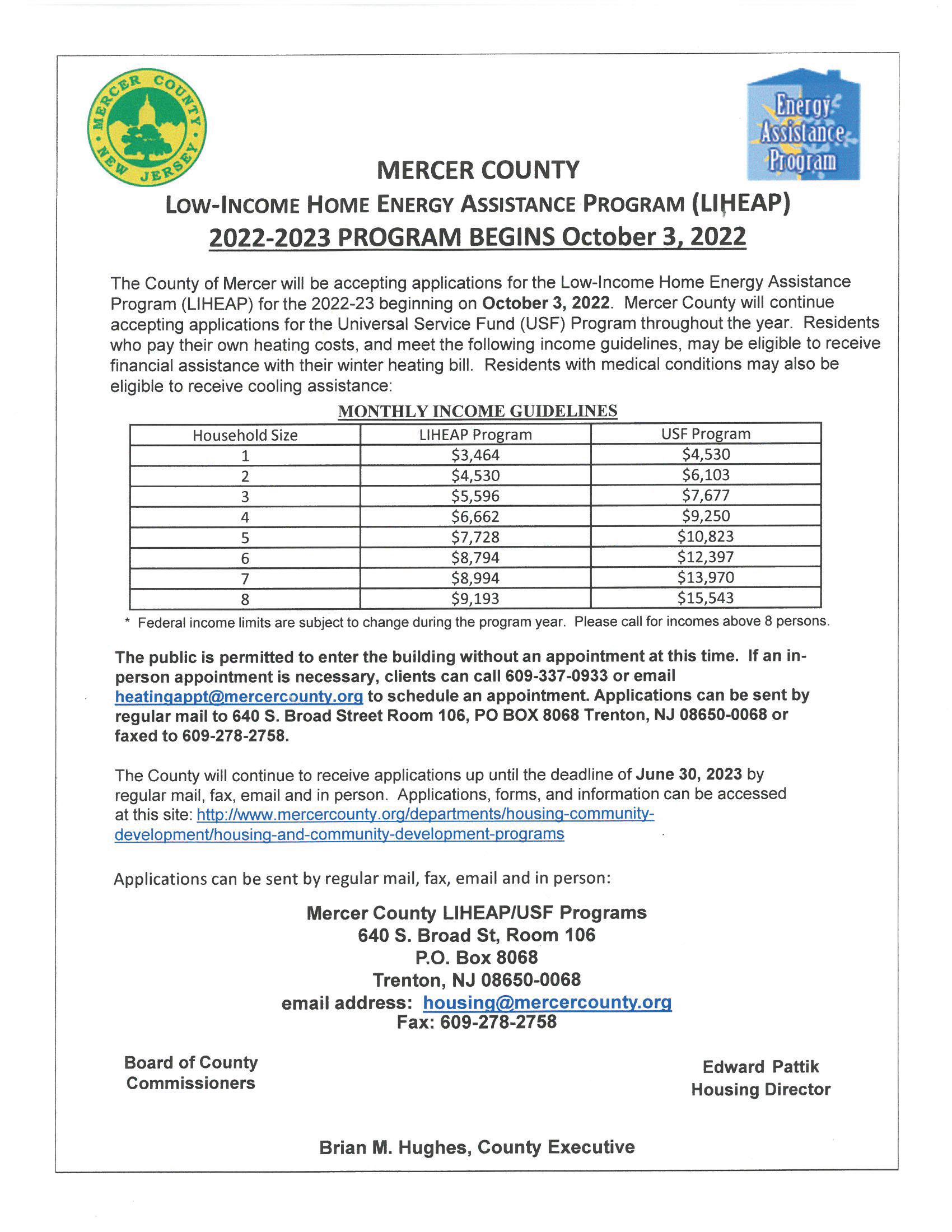


The County of Mercer will be accepting applications for the Low-Income Home Energy Assistance Program (LIHEAP) until May 31, 2018. Mercer County will continue accepting applications for the Universal Service Fund (USF) Program throughout the year. Residents who pay their own heating costs, and meet the following income guidelines, may be eligible to receive financial assistance with their winter heating bill. Residents with medical conditions may also be eligible to receive cooling assistance.







Size USF Program LIHEAP Program

1 $1,759 $2,010


2 $2,369 $2,707






3 $2,978 $3,404
4 $3,588 $4,100
5 $4,198 $4,797




6 $4,807 $5,494
7 $5,417 $6,190
8 $6,026 $6,887






9 $6,636 $7,584


10 $7,245 $7,935
* Federal income limits are subjec to change during the program year.
To request an application please contact the Mercer County Housing and Community Development Office at (609) 989-6858 or (609) 989-6959. Applications can also be obtained by visiting the Housing office at 640 South Broad Street, 1st floor, Room 106, Trenton, NJ 08650.
Hamilton Office - County Connection

The public is permitted to enter the building without an appointment at this time. If an in-person appointment is necessary, clients can call 609-337-0933 or email heatingappt@mercercounty.orgto schedule an appointment. Applications can be sent by regular mail to 640 S. Broad Street Room 106, PO BOX 8068 Trenton, NJ 08650by regular mail, fax, email and in person. Applications, forms, and information can be accessed at this site:http:// www.mercercounty.org/departments/housing-community-development/housing-and-community-
Hamilton Square Shopping Center 957 Highway 33 at Paxson Avenue Hamilton, NJ 08690
Tues & Thurs 10:00am-12:00pm (by appt. only) Saturdays – 4/7 & 5/5 10:00am-1:00pm









































Board of Chosen

Edward Pattik Freeholders Housing Director
Brian M. Hughes, County Executive
me involved with the game and loving the game. Just being around it and the atmosphere and watching everyone play helped me a lot.”
Hopewell coach “Uncle” Ed Gola was happy to get the player Turnbull turned into, as the senior has been a starter since his sophomore year and played wherever needed.
“We’ve moved him around over the years,” the Ice Cream Emperor said. “He’s played center back, defensive center-mid, center mid. He’s played a lot of soccer for us since his sophomore year. He started on that sectional (championship team) team.

“He’s a soccer rat. He plays on a high level club team. He plans to play in college. He’s a grinder, he’s got good feet, a good intuition about the game. He also has tremendous stamina. You never have to worry about taking him out of the game. Wherever we play him, that position is covered.”
That intuition Gola spoke of likely comes from being the son of a coach. Turnbull was ingrained with the sport as a youngster, and the knowledge and skills kept building from there.

“I think (coaches’ kids) have that in their blood,” Gola said. “There’s probably some car rides home where there’s




a lot of soccer discussion after games and practices. I think it can be beneficial. Someone who has coached at that level, whether boys or girls, knows a lot about the game and probably provides a lot of


good feedback.


“Probably like any other kid, they don’t want to hear from their parents, but I think that’s important. You see that with a lot of kids who have parents that have


coached at that level. They have a better chance of having a stronger soccer IQ because they’ve been around the game for so long.”
Turnbull, whose father Chris is principal at Timberlane Middle School, began doing rec soccer in kindergarten before playing for the Ewing United. He moved on to Match Fit travel in fifth grade and has remained ever since. In club, he is mainly an outside back, but plays some center midfield.
He arrived at HVCHS in the fall of 2020, which was the helter skelter Covid year. Chris was placed on the freshman team as classmates had to stay together that season. But he made the jump to varsity in 10th grade and became quickly entrenched.


“Obviously it was huge coming from the freshman team going up to a varsity starter,” Turnbull said. “It was important for me. Going in I knew we had a lot of graduating defenders and I could potentially be part of the team, but I never imagined starting right away.”
Turnbull scored two goals that season but truly impressed with his playmaking skills as he was second on the team with 13 assists. Last year he dipped to seven assists, but Gola pointed out that not only did he lose the scoring firepower of Alex and Nick Tagliareni, he was moved to










The Hopewell Valley Soccer Association has honored two Hopewell Valley Central High School graduates with $1,000 scholarships in honor of Nathan Lautermilch, a former HVSA board member who had a passion for youth soccer and STEM careers. Both were awarded scholarships for their superior soccer experiences, community service, academic performance and interest in STEM. At left is Nathan’s wife, Kate Edwards, with recipient Thomas Hooks (University of Virginia). At right is recipient Katie Yancey (George Washington University). HVSA thanks Katherine Lautermilch, Nathan’s mother, for her support of the scholarship.

center back to shore up the defense and wasn’t in position to create as much.
This year he’s back at center-mid, although that could change depending on circumstances. But while he’s there, Gola wouldn’t mind seeing him be a bit more selfish.
“I would like him to take the opportunity to shoot more but he’s a guy that likes to distribute and set guys up,” the dean of CVC coaches said. “That’s just as important as the guy who scores the goals. He’s scored a couple big goals here and there. Mostly he grinds the midfield, he does a lot of the dirty work.” Which he doesn’t mind at all.
“I like getting hard challenges, I guess,” Turnbull said. “I like just making sure we can keep the ball or get the ball back.”
As for trying to score more goals, Turnbull is not adverse to it, but won’t disrupt the flow of the game in an effort to do so.
“I think if there’s something I can add more to my game, it would be taking more shots and scoring more,” he said. “But it’s not like I’ll do that if it means going out of my way instead of just doing what I’m supposed to do.”
At times, he is supposed to defend, which is something he also does well.
“He’s very solid,” Gola said. “He has played in the back for us when we needed him. I think it’s beneficial for him if he continues to play soccer that he has the flexibility to not only play in the back but midfield.”
Speed is one of Turnbull’s strengths, as he runs track for the Bulldogs and will focus on the 400 and 800 meter races this winter and spring. In assessing the positions he plays, Chris feels more discipline is needed in the back.
“Defensively, it’s just staying in front of your guy, being confident, and playing simple is really important,” he said. “Don’t get out of what you can do.
“At center mid you can take more risks, you’re more involved going forward. It’s about distributing, getting more involved, also doing defensive work and going hard on tackles. You need the intensity and all that.”
Turnbull has remained relatively injury-free during his career. Gola points out “he’s not a guy you’d think is a body builder, his frame is thin. But he knows how to use his body and take care of it.”

The coach added that Chris is a team captain who leads by example, saying that “he’s the kind of guy you want everybody to play like on the field.”
The next stop for Turnbull will be on a college pitch, as he is being recruited by Muhlenberg and Ursinus. It was something that never appeared on his radar until recently.
1310 BEAR TAVERN RD TITUSVILLE, NJ

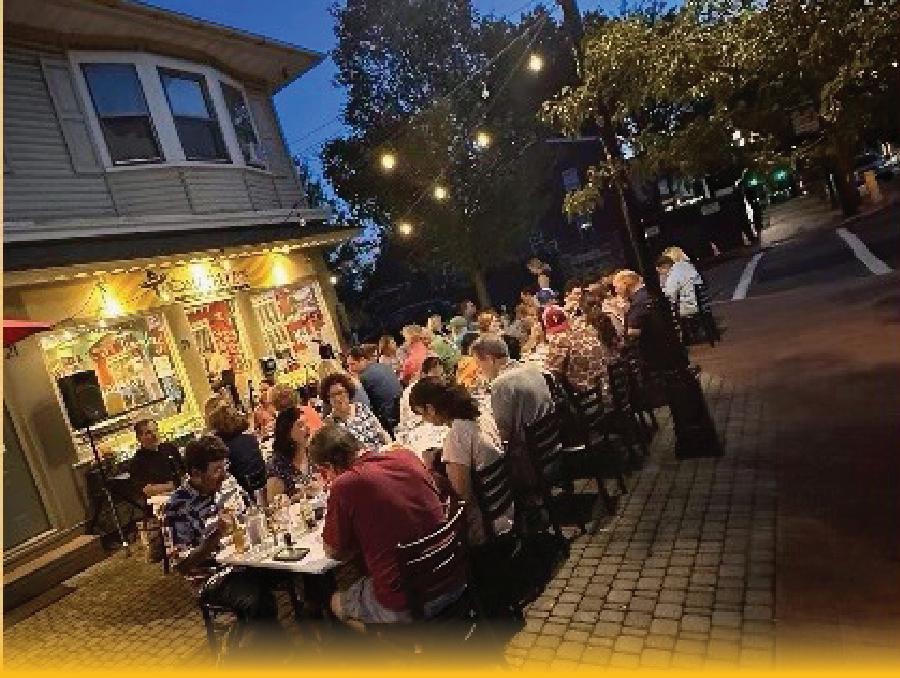
2023!
Winter Break Horse Camp 2023!
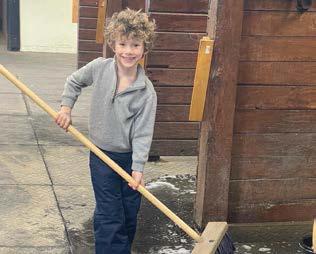
Program Dates: 12/26-12/31
Program Dates: 12/26-12/31
Winter Break Horse Camp 2023!
Embrace your horse love at Duncraven Equestrian Center. Participants will learn safety on ponies, grooming techniques, riding skills, and other primary horsemanship competencies. develop confidence and motor coordination while providing a supportive and fun environment



Embrace your horse love at Duncraven Equestrian Center. Participants will learn safety on and around horses, grooming techniques, basic riding skills, and primary horsemanship. Sessions aim to help develop confidence and motor-coordination skills while providing a supportive and fun environment for the participants as well as social interaction between them. The perfect fit for eager, young, aspiring Equestrians.
“I didn’t really think about college until a few years ago, when I got to high school,” he said. “When I was young it was just about having fun and enjoying it. I still enjoy the game but (college) is more the goal recently.”
And as he gets ready to leave the nest, he’s still not too old to get advice from the old Spartan coach.
“All the time,” Turnbull said with a laugh. “She always asks me after every practice how I did. After games she and my dad will talk to me about the game. We’re all involved. It’s mostly about communicating, being confident, stuff like that.”
It’s all stuff that Turnbull has been cultivating for the past decade, with the only difference being that Black & Gold now trumps Green & White.
Embrace your horse love at Duncraven Equestrian Center. Participants will learn safety on and around horses, grooming techniques, basic riding skills, and primary horsemanship. Sessions aim to help develop confidence and motor-coordination skills while providing a supportive and fun environment for the participants as well as social interaction between them. The perfect fit for eager, young, aspiring Equestrians.
Program Dates: 12/26-12/31
Embrace your horse love at Duncraven Equestrian Center. Participants will learn safety on and around horses, grooming techniques, basic riding skills, and primary horsemanship. Sessions aim to help develop confidence and motor-coordination skills while providing a supportive and fun environment for the participants as well as social interaction between them. The perfect fit for eager, young, aspiring Equestrians.
The perfect preparation for eager, young and aspiring equestrians.

For more information, contact Pam @ 602.736.9043
For more information, contact Pam @ 602.736.9043
Program Dates: 12/26-12/31

Embrace your horse love at Duncraven Equestrian Center. Participants will learn safety on and around horses, grooming techniques, basic riding skills, and primary horsemanship. Sessions aim to help develop confidence and motor-coordination skills while providing a supportive and fun environment for the participants as well as social interaction between them. The perfect fit for eager, young, aspiring Equestrians.
Embrace your horse love at Duncraven Equestrian Center. Participants will learn safety on and around horses, grooming techniques, basic riding skills, and primary horsemanship. Sessions aim to help develop confidence and motor-coordination skills while providing a supportive and fun environment for the participants as well as social interaction between them. The perfect fit for eager, young, aspiring Equestrians.
Program Dates:
For more information, contact Pam @ 602.736.9043
Summer Sessions (Monday - Friday)

For more information, contact Pam @ 602.736.9043
7/10 - 7/14 | 7/17 - 7/21 | 7/24 - 7/28
Embrace your horse love at Duncraven Equestrian Center. Participants will learn safety on and around grooming techniques, basic riding skills, and primary horsemanship. Sessions aim to help develop confidence motor-coordination skills while providing a supportive and fun environment for the participants as interaction between them. The perfect fit for eager, young, aspiring Equestrians.
For more information: Contact Pam @ 602-736-9043
7/31 - 8/4 | 8/7 - 8/11 | 8/14 - 8/18
Contact:

Pam@Duncravenec.com

609-281-7181
For more information, contact Pam @ 602.736.9043
limit development and protect open space becomes readily apparent.
Brian Hughes was elected as Mercer County Executive in November 2003 and will have completed 20 years at the end of this term. He is not running for re-election.
While Executive Brian Hughes can probably share a long list of assorted achievements accomplished throughout the county, Friends of Hopewell Valley Open Space will honor him on Oct. 8 with their Gleeson Award for the ecological gains Hopewell Valley has experienced during his tenure.
Under Hughes’ leadership, Mercer County has strongly contributed to improving the health and wellness of our community. This Nature in the Valley column has frequently shared research about the health benefits of green spaces and nature.
Couple that with the fact that New Jersey is the most densely populated state in the country, and the urgency to




































































Since his earliest days in office, Hughes has taken action and committed funding to ensure that our area is replete with preserved land. One of his first victories was Mercer County’s successful ballot initiative to preserve and protect open space to ensure natural resources and local agriculture will always have a place in Mercer County.
While the initial fund was used for land acquisition and preservation, in November 2021, Mercer County voters overwhelmingly approved a referendum that Executive Hughes proposed to permit the reallocation of the County’s Open Space Trust Fund — placing a greater emphasis on stewardship, park development and historic preservation. In addition, the county has supported trails and plans so residents can access our green spaces. The Mercer County Bicycle Master Plan identifies and prioritizes bicycle improvements for every county highway. Implementation will give constituents of all ages a safer multimodal transportation option.

When Mercer County purchased the Hopewell Valley Golf Club in 2020, they not only furthered their commitment to protect Mercer County open space by purchasing the 186-acre, 18-hole course, but also provided a new active recreation destination in a section of the county known for its passive parks, such as St. Michael’s Preserve and Baldpate Mountain.

Local leaders throughout the Valley were happy to weigh in for this column. There was a recurring theme of Hughes’s ability to partner with municipalities toward a greater good.

As its longest serving Mayor, Vanessa Sandom is the Hopewell Township elected official who collaborated most extensively with Hughes. “As you might expect, over the years, the township and county faced some challenges. But in the end, we were able to work together to resolve our differences in ways that benefitted us both,” said Sandom, “Today, under his leadership, Hopewell Township enjoys the most preserved open space in Mercer County.”
 Current Hopewell Township Mayor
Current Hopewell Township Mayor
Michael Ruger added, “Thanks to our preservation partners in Mercer County and at the state, 43% of Hopewell Township is now preserved open space, farmland, and outdoor recreation space.”
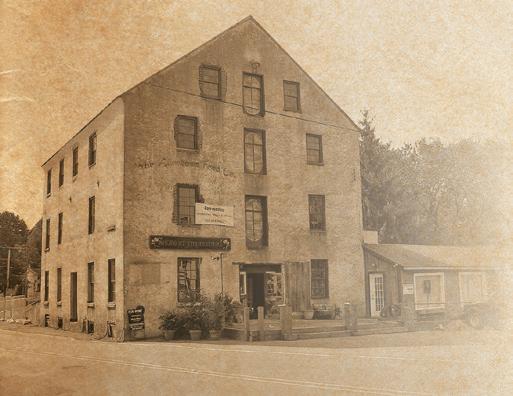



Hopewell Boro Mayor Paul Anzano, who also completes 20 years at the end of this term, shared: “Brian worked collaboratively with local government and brough people together to solve problems. He approached the Borough with the same effort and determination to do the right thing regardless of politics and our diminutive size as probably the smallest (by population) municipality in the County.” Anzano added, “I especially appreciated his foresight in his efforts to create the 400-acre Saint Michael’s preserve - a true and permanent benefit for everyone.”
Similarly, nonprofit leaders amplified those thoughts.




































Linda Mead, D&R Greenway President and CEO has worked with Brian since he started as the Mercer County Executive. She was quite grateful for all that they’d accomplished: “Brian Hughes has been a champion of people and place — creating

open spaces for all people throughout Mercer County. Under his leadership, we worked with his team to establish the Tulpehaking Nature Center in the Abbott Marshlands.

He led successful voter initiatives to support land preservation that included Greenway Meadows in Princeton, and our Sourlands Woosamonsa, and St.Michaels Farm Preserve in Hopewell. Together we established Capital City Farm in Trenton. Brian’s legacy will live on forever in the lands that residents enjoy every day.”
As executive director of The Watershed Institute since 2005, Jim Waltman has had opportunities to work with Hughes on key environmental agenda items.
“Brian Hughes has been a champion of open space and a great partner of the Watershed. He leaves a strong legacy of land and water protection.”
David Sandahl, Board of Trustees Chair for the Lawrence Hopewell Trail Corporation, shared: “The Lawrence Hopewell Trail largely owes its existence to the unwavering early support of Brian Hughes. At a time when skepticism prevailed, Brian stepped up to champion the LHT, making pivotal investments in Mercer Meadows Park. These investments in the LHT helped
make the trail a cherished community asset, bringing joy to thousands of residents and visitors annually.”





Jay Watson has known Brian in various roles at the state and at nonprofits.

“All of us, the Green Acres Program, the Farmland Preservation Program, municipalities and nonprofits have been fortunate to have Brian’s leadership in our open space preservation efforts over many years. Whether working to cobble together multiple partners to preserve large tracts of land in suburban and rural parts of Mercer; or to preserve the small 2-acre parcel in Trenton next to the Trenton Area Soup Kitchen to create Capital City Farm, he saw the value in it all” said Watson, currently, co-executive director of NJ Conservation Foundation.
“All one has to do is ride around the county and see the incredible trails, open space and recreation areas to understand, what a remarkable champion we have had in our landscape” he said.
Finally, as the Executive Director of Friends of Hopewell Valley Open Space, I will share that the decision to honor Brian Hughes with our premier award was made by a unanimous vote of our board of trustees to recognize the support and value Brian Hughes and Mercer County have made not only to
our community but also to FoHVOS as an organization.

FoHVOS staff partner with all levels of both Mercer County planning as well as the Mercer County Park Commission. The theme for our event is “Connecting For a Cooler Future,” and nowhere is that concept more true than the connections we’ve made with our county partners on preservation, land stewardship, advocacy, and more. That’s over and above providing our headquartered home atop the Ted Stiles Preserve at Baldpate Mountain.
In addition to presenting Brian Hughes with the Gleeson award, Capital Health will receive FoHVOS Friends Organizational Recognition and Leslie Floyd of Mercer County and Renee Jones of the NJDEP will be named Preservation Partners.

Their support helps us realize our mission to preserve land, protect natural resources, and inspire the next generation of conservationists.
For more information about the FoHVOS “Connecting For a Cooler Future” Event, visit fohvos.org.
It all began one morning when I was walking on the beach after a storm and found a kayak paddle. Now that’s a treasure. I took it home and with help on the other end was able to pull it apart, clean off the salt residue, lubricate the connection and put it back together. Then, I looked it up online and found out that new that paddle cost $88. Clearly, this was a sign from the mysterious forces ruling the universe that I was meant to be a kayaker.
Fortuitously, I have a nephew with a fleet of kayaks. Even more fortuitously, his children had traded their interest in kayaking for welding, theater and bicycling, respectively. He was eager to part with whatever boats I was willing to take.

So now I had a kayak and a paddle. Where to use it? Ten minutes away is Rocky Hill with a tiny dock providing access to the D&R Canal. But how was I going to get the kayak to the canal in my Honda Civic?
Most folks carry their kayaks on the roof of their car. My new kayak weighed 52 lbs. so if I bought a roof rack, I’d still have to lift this really unwieldy craft onto the top of the car without either destroying my car or killing myself.
I settled on an alternative. I lowered the back seats and slid the kayak through the trunk up to the back of the passenger seat. It fit with only about two feet sticking out.
Before I got on the road, I wanted to make sure the kayak was visible to traffic behind me. Even though it was a bright aqua, I decided it needed a flag tied to its stern. Among my beach finds was a faded, torn flag attached to a washed-up lobster buoy.
I spray-painted the flag a bright orange and then, compulsively, sewed up the rips. Since it was a flag, I thought “just like Betsy Ross,” but that conflicted with my hyper-masculine self-image. So I re-envisioned myself as an old salt repairing canvas, like a character in Ultimately, as always happens when I pick up needle and thread, I saw myself paying tribute to my long-deceased Uncle Morris the tailor who immigrated to this country in the early 1920s.
Finally, how was I going to get the kayak from car to canal? Dragging it on gravel would lead to holes in the hull.

Yet, again, divine forces were in operation. A friend had a set of kayak wheels that she bought years ago but never used. She gave them to me. The axle was too wide for the kayak, So I trimmed it with a hacksaw. After tying down the car’s trunk with a bungee cord, I set off for my maiden voyage on the canal.
It was a beautiful day with the trees and sky reflected strikingly in the water. While paddling, I saw turtles, one merganser, and a bag of garbage snagged on a log. Not one single alligator.
I soon got into the “zone” (whatever that is) and began musing about the usual: What is the meaning of life? Are dolphins as smart as people? Will the orange ex-president go to jail?




















Also, among my thoughts was all thatI didn’t know about paddling. As soon as I got home I resolved to consult Google, the source of all wisdom, sort of like the Tree of Knowledge in the Garden of Eden.


After an hour on the water, exiting the kayak was not graceful. I slipped on the canal’s muddy bank and fell




in. Fortunately, it was 90 degrees and humid, so the dunking was quite refreshing.
My online research revealed that everything I was doing was wrong. I arrived for my second voyage on the canal armed with exquisite advice on paddling. The most important tip was to rotate my body with each stroke. Boy, did that make a difference. I didn’t need to desperately grip the paddle as if I were hanging from the edge of a cliff. My palms no longer bled. Kayaking had become much more comfortable, smoother.
I paddled for an hour feeling proud and at peace. When I got back to the dock, I did not fall into the water, but I did find myself slithering out of the boat clumsily. There must be a better way.
I also learned online that kayaking is good for every muscle and organ, so beneficial for the body that continuing to paddle will guarantee my living forever.
A final observation: If kayaks are not for you, there are plain yaks to visit at two farms in nearby Stockton. Not only can you stare at the yaks, you can also buy yak steaks, yak sausage and yak-wool socks.
Welcome home to 37 Ventana Court offering 3-bedroom 2.5 baths spot lighting 9ft ceilings, impressive 8 ft. extension to both the 1st and 2nd floors, and open concept living/ dining area with gleaming hardwood floor.
NEW


In town Duplex, 28 Columbia is 3 bedrooms, one of the bedrooms is on the first floor, updated and renovated, walk up finished attic. 30 Columbia is 2 bedrooms, new gas heater and ductless AC, separate laundry facilities in basement current monthly rent roll is $4,860.



Attention farm lovers and/or builders...A truly remarkable property in Hopewell Township! The residence/horse farm with its 19+ acres, and stunning views, adjoin a cul de sac of large estate homes. The Township said this land is located in the VRC Zoning District and would allow for cluster development as long as zoning regulations and other requirements can be met.


Hamilton | $619,715
Chapel Bridge at Hamilton” is a new exciting community of 44 single family home sites in Hamilton Township, Mercer County, NJ. The new construction site is conveniently located close to Route 1, I-95, I-295, abundant shopping, Trenton Mercer airport, and only 3 miles to the Hamilton Train Station!
a downstairs office (could be 5th bedroom?). The remodeled kitchen with an adjoining breakfast room has new stainless appliances, a new Viking stove top, a new double sink, and stunning butcher block counters.
Hamilton | $626,300
Chapel Bridge at Hamilton is a new construction community of 44 single family home sites in Hamilton Township, Mercer County, NJ. The new construction site is conveniently located close to Route 1, I-95, I-295, abundant shopping, Trenton Mercer airport, and only 3 miles to the Hamilton Train Station! Three new exciting home designs are available to be built, ranging in size from 1,942 to 2,960 square feet.


% APY*
6.00 On balances up to $25,000 if qualifications are met.
0.01 On all balances, even if qualifications are not met.
% APY*
*Account approval, conditions, qualifications, limits, timeframes, enrollments, and other requirements apply. A $5 deposit is required to open the account. At least 1 Direct Deposit, ACH credit, ACH payment or bill pay transaction(s) is required each monthly qualification cycle. Enrollment and agreement to receive e-statements and at least 12 PIN-based / signature-based debit card purchases are conditions of this account each qualification cycle. When your monthly Kasasa Cash account qualifications are met, daily balances up to and including $25,000 in your Kasasa Cash account earn a dividend rate of 5.98% resulting in an APY of 6.00%; and daily balances over $25,000 earn a dividend rate of 0.75% on the portion of the daily balance over $25,000, resulting in a range from 6.00% to 1.80% APY depending on the account’s daily balance. When your Kasasa Cash qualifications are not met, the dividend rate earned on the account’s entire daily balance will be 0.01% resulting in an annual percentage yield of 0.01% and ATM withdrawal fees are not refunded. You will receive reimbursements up to an aggregate total of $25 for nationwide foreign ATM withdrawal fees incurred within your Kasasa Cash account during each monthly qualification cycle when qualifications are met. A
$4.99 per transaction applies when qualifications are met. Limit of one account per member. Terms subject to change at any time.
